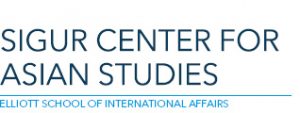About the Keynote Speaker
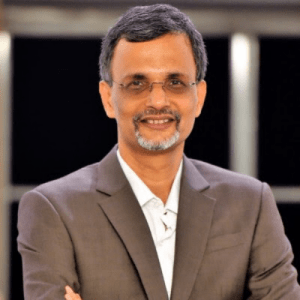 Dr. V. Anantha Nageswaran serves as the Chief Economic Advisor to the Government of India. He wrote a weekly column for Mint for 15 years, as well as co-authored four books. Prior to his current role, Dr. Nageswaran was a part-time member of the Economic Advisory Council to the Prime Minister of India for 2 years and is an honorary senior advisor to the International Financial Services Authority of India. Between 1994 to 2011, he held several positions including Currency Economist at the Union Bank of Switzerland, Head of Research and Investment Consulting in Credit Suisse Private Banking in Asia, and Head of Asia Research and Global Chief Investment Officer at Bank Julius Baer. He graduated from the Indian Institute of Management, Ahmedabad with a Masters in Business Administration and received his PhD in Finance from the University of Massachusetts in Amherst.
Dr. V. Anantha Nageswaran serves as the Chief Economic Advisor to the Government of India. He wrote a weekly column for Mint for 15 years, as well as co-authored four books. Prior to his current role, Dr. Nageswaran was a part-time member of the Economic Advisory Council to the Prime Minister of India for 2 years and is an honorary senior advisor to the International Financial Services Authority of India. Between 1994 to 2011, he held several positions including Currency Economist at the Union Bank of Switzerland, Head of Research and Investment Consulting in Credit Suisse Private Banking in Asia, and Head of Asia Research and Global Chief Investment Officer at Bank Julius Baer. He graduated from the Indian Institute of Management, Ahmedabad with a Masters in Business Administration and received his PhD in Finance from the University of Massachusetts in Amherst.
About the Thematic Address
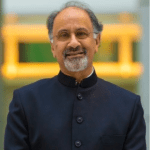
Indermit Gill is Chief Economist of the World Bank Group and Senior Vice President for Development Economics. Before starting this position on September 1, 2022, Gill served as the World Bank’s Vice President for Equitable Growth, Finance, and Institutions, where he helped shape the Bank’s response to the extraordinary series of shocks that have hit developing economies since 2020. Between 2016 and 2021, he was a professor of public policy at Duke University and non-resident senior fellow at the Brookings Institution’s Global Economy and Development program. Gill led the World Bank’s influential 2009 World Development Report on economic geography. His work includes introducing the concept of the “middle-income trap” to describe how countries stagnate after reaching a certain level of income. He has published extensively on key policy issues facing developing countries—among other things, sovereign debt vulnerabilities, green growth and natural-resource wealth, labor markets, and poverty and inequality. Gill has also taught at Georgetown University and the University of Chicago. He holds a Ph.D. in economics from the University of Chicago.
About the Session Speakers
Sajjid Z. Chinoy is J.P. Morgan’s Chief India Economist and also serves on the Advisory Council to the 15th Finance Commission set up by the Government of India. He has previously worked at the International Monetary Fund (IMF) and McKinsey & Company. He has also previously served as a member of the RBI’s “Expert Committee to Revise and Strengthen the Monetary Policy Framework” that proposed inflation targeting in India, was a consultant to the FRBM Review Committee set up by the government to proposed a new fiscal anchor, and a member of the Indian Banks Association (IBA) Monetary Policy Group. Since 2014, he has been ranked as one of the “Best Individuals in Research in India” by Asset Magazine. He has authored several publications on the Indian economy including co-editing a book on Indian economic reform: “Reforming India’s External, Fiscal and Financial Policies” with Dr. Anne O. Krueger. He received his Ph.D. in economics at Stanford University in 2001.
is J.P. Morgan’s Chief India Economist and also serves on the Advisory Council to the 15th Finance Commission set up by the Government of India. He has previously worked at the International Monetary Fund (IMF) and McKinsey & Company. He has also previously served as a member of the RBI’s “Expert Committee to Revise and Strengthen the Monetary Policy Framework” that proposed inflation targeting in India, was a consultant to the FRBM Review Committee set up by the government to proposed a new fiscal anchor, and a member of the Indian Banks Association (IBA) Monetary Policy Group. Since 2014, he has been ranked as one of the “Best Individuals in Research in India” by Asset Magazine. He has authored several publications on the Indian economy including co-editing a book on Indian economic reform: “Reforming India’s External, Fiscal and Financial Policies” with Dr. Anne O. Krueger. He received his Ph.D. in economics at Stanford University in 2001.
Arun Kumar .webp) most recently served as the Chairman and CEO of KPMG in India, an organization consisting of several thousand professionals engaged in providing assurance, tax, and advisory services. He was a member of the global board of directors of KPMG. He previously served in President Obama’s Administration as Assistant Secretary of Commerce for Global Markets and Director General of the U.S. & Foreign Commercial Service (USFCS). As the Administration’s lead official to promote U.S. exports, foreign direct investment, and enhanced market access around the world, he led a team of 1,700 professionals in 78 countries and all 50 United States. Prior to his stint in Washington, DC, Arun was a partner and a member of the board of KPMG LLP in the US. Based in Silicon Valley, he led KPMG’s Management Consulting practice in the West for many years. He has also been a company mentor and entrepreneur in Silicon Valley. Arun is a member of the Council on Foreign Relations. He is the author of The Global Trade Paradigm (HarperCollins, 2023) as well as two books of poetry.
most recently served as the Chairman and CEO of KPMG in India, an organization consisting of several thousand professionals engaged in providing assurance, tax, and advisory services. He was a member of the global board of directors of KPMG. He previously served in President Obama’s Administration as Assistant Secretary of Commerce for Global Markets and Director General of the U.S. & Foreign Commercial Service (USFCS). As the Administration’s lead official to promote U.S. exports, foreign direct investment, and enhanced market access around the world, he led a team of 1,700 professionals in 78 countries and all 50 United States. Prior to his stint in Washington, DC, Arun was a partner and a member of the board of KPMG LLP in the US. Based in Silicon Valley, he led KPMG’s Management Consulting practice in the West for many years. He has also been a company mentor and entrepreneur in Silicon Valley. Arun is a member of the Council on Foreign Relations. He is the author of The Global Trade Paradigm (HarperCollins, 2023) as well as two books of poetry.
 Dr. Vivek Lall is the Chief Executive of General Atomics Global Corporation based in San Diego, California. GA and affiliated companies operate on five continents. The company produces a series of unmanned aircraft (Predator/Reaper/Guardian), produces electro-magnetic aircraft launch and recovery systems, satellite surveillance, electro-magnetic rail gun, high power laser, hypervelocity projectile, and power conversion systems, is the principal private sector participant in thermonuclear fusion research through its internationally recognized DIII-D Facility.
Dr. Vivek Lall is the Chief Executive of General Atomics Global Corporation based in San Diego, California. GA and affiliated companies operate on five continents. The company produces a series of unmanned aircraft (Predator/Reaper/Guardian), produces electro-magnetic aircraft launch and recovery systems, satellite surveillance, electro-magnetic rail gun, high power laser, hypervelocity projectile, and power conversion systems, is the principal private sector participant in thermonuclear fusion research through its internationally recognized DIII-D Facility.
GA is also a leader in development of next-generation nuclear fission and high-temperature materials technologies. Lall has been appointed to the following Boards: Advisory Board of the Quad Investors Network, United States Technical Team member to the NATO STO (Science and Technology Organization),Industry Advisory Board of the American Society of Mechanical Engineers (ASME),International Advisory Group of the US Chamber of Commerce, Board of Directors of US Japan Business Council, Global Board of Directors of the US India Business Council, Senior Advisor to the Center for Commerce and Diplomacy at the University of California San Diego, Board of the Center for Advancing Global Business at San Diego State University and US Cabinet Secretary heading Department of Transportation. Lall served as Vice President of Aeronautics Strategy and Business Development at Lockheed Martin, Chief Executive of U.S. and International Strategic Development at General Atomics Electromagnetic Systems and held leadership roles with The Boeing Company where he was appointed as Vice President and India Country Head, Boeing Defense Space & Security.
In addition, he has worked as an adjunct faculty member at Embry- Riddle, McConnell Air Force Base, served as the founding Co-Chair of the US-India Aviation Cooperation Program and prior to Boeing he worked for Raytheon and conducted research with NASA Ames Research Center in various multidisciplinary engineering fields. Lall was also a special advisor to the United Nations in New York in broadband and associated cyber security issues. He earned a Bachelor of Mechanical Engineering degree from Carleton University in Canada, a Masters of Aeronautical Engineering degree from Embry-Riddle Aeronautical University in Florida, his Ph.D. in Aerospace Engineering from Wichita State University in Kansas, his MBA from City University in Seattle and has completed management and executive courses at the American Management Association in Washington DC.
He was also conferred the President’s Lifetime Achievement Award by the President of the United States of America in September 2022, conferred the “World Leader Award” by the House of Lords in the United Kingdom in 2023 and the Golden Peacock award by the Institute of Directors (IOD) at United Arab Emirates in 2024. He is also an Ambassador of the State of Arkansas and a Kentucky Colonel which is the most well-known US colonelcies conferred to several past US Presidents. He was granted the Grand Cross by His highness Mahmoud Salah Al Din Assaf and Cambridge (UK) has listed him as one of only 2000 Outstanding Scientists of the Twentieth Century as well was President of the Mathematical Association of America. He has authored over hundred articles in various journals. He was also trained as a private pilot at the Phoenix International Flight Training Center in Florida.
Sabina Alkire directs the Oxford Poverty and Human Development Initiative (OPHI) at ODID. Her research interests include multidimensional poverty measurement and analysis, welfare economics, the capability approach, the measurement of freedoms and human development. Together with Professor James Foster, she developed the Alkire-Foster (AF) method for measuring multidimensional poverty, a flexible technique that can incorporate different dimensions, or aspects of poverty, to create measures tailored to each context. With colleagues at OPHI this has been applied and implemented empirically to produce a Multidimensional Poverty Index (MPI). The MPI offers a tool to identify who is poor by considering the range of deprivations they suffer. It is used to report a headline figure of poverty (the MPI), which can be unpacked to provide a detailed information platform for policy design showing how people are poor nationally, and how they are poor by areas, groups, and by each indicator. Previously, she worked at the George Washington University, Harvard University, the Human Security Commission, and the World Bank. She has a DPhil in Economics from the University of Oxford. She holds a DPhil in Economics, an Msc in Economics for Development and an MPhil in Christian Political Ethics from the University of Oxford.
directs the Oxford Poverty and Human Development Initiative (OPHI) at ODID. Her research interests include multidimensional poverty measurement and analysis, welfare economics, the capability approach, the measurement of freedoms and human development. Together with Professor James Foster, she developed the Alkire-Foster (AF) method for measuring multidimensional poverty, a flexible technique that can incorporate different dimensions, or aspects of poverty, to create measures tailored to each context. With colleagues at OPHI this has been applied and implemented empirically to produce a Multidimensional Poverty Index (MPI). The MPI offers a tool to identify who is poor by considering the range of deprivations they suffer. It is used to report a headline figure of poverty (the MPI), which can be unpacked to provide a detailed information platform for policy design showing how people are poor nationally, and how they are poor by areas, groups, and by each indicator. Previously, she worked at the George Washington University, Harvard University, the Human Security Commission, and the World Bank. She has a DPhil in Economics from the University of Oxford. She holds a DPhil in Economics, an Msc in Economics for Development and an MPhil in Christian Political Ethics from the University of Oxford.
Prerna Singh  is Mahatma Gandhi Associate Professor of Political Science and International Studies, with appointments in the School of Public Health and the Department of Sociology at Brown University. She has published numerous award-winning books and articles on human development, public health, ethnicity and nationalism. Her first book, How Solidarity Works for Welfare was awarded best book prizes from both the American Political Science and the American Sociological Associations. Singh has been awarded fellowships by the Center for Advanced Study of Behavioral Sciences at Stanford University, the Social Science Research Council, the Andrew Carnegie foundation, the American Academy of Berlin, the Harvard Academy for International and Area Studies, and the American Institute of Indian Studies. She has shared her research with scholarly, policy and popular audiences in over a hundred lectures, including keynote addresses, delivered across twenty different countries.
is Mahatma Gandhi Associate Professor of Political Science and International Studies, with appointments in the School of Public Health and the Department of Sociology at Brown University. She has published numerous award-winning books and articles on human development, public health, ethnicity and nationalism. Her first book, How Solidarity Works for Welfare was awarded best book prizes from both the American Political Science and the American Sociological Associations. Singh has been awarded fellowships by the Center for Advanced Study of Behavioral Sciences at Stanford University, the Social Science Research Council, the Andrew Carnegie foundation, the American Academy of Berlin, the Harvard Academy for International and Area Studies, and the American Institute of Indian Studies. She has shared her research with scholarly, policy and popular audiences in over a hundred lectures, including keynote addresses, delivered across twenty different countries.
Mekala Krishnan  is a partner at the McKinsey Global Institute (MGI), McKinsey’s business and economics research arm. Her research focuses on topics related to sustainable and inclusive growth, including climate risk and the net-zero transition, globalization, productivity growth, and gender economics. Her most recent research focuses on the net-zero transition, adaptation and physical climate risk across sectors and geographies, including its implications for companies and countries. She is an author of the recent MGI reports, The net-zero transition: What it would cost, what it would bring, From poverty to empowerment: Raising the bar for sustainable and inclusive growth, and Climate risk and response: Physical hazards and socioeconomic impacts. Her past research has focused on the risks facing global value chains and the future of globalization. Mekala is a frequent speaker on these topics at global conferences as well as with executives at Fortune 500 companies. She has authored numerous articles and her work has been cited in leading business publications, including The Financial Times, The Wall Street Journal, The Economist, and Harvard Business Review. Mekala serves on a Bretton Woods Committee working group on climate finance and on advisory boards for the Greater Boston Chamber of Commerce and for the Sibley School of Mechanical Engineering at Cornell University. She is also on the board of the Global Fund for Women, a leading public foundation dedicated to improving global gender equality. She was previously a member of a task force at the Hutchins Center on Fiscal and Monetary Policy at Brookings focused on improving productivity measurement. Mekala received her Ph.D. and M.S. degrees in Mechanical Engineering from Cornell University in 2011. Prior to Cornell, she received a Bachelor of Technology degree in Mechanical Engineering in 2006 from the Indian Institute of Technology Delhi.
is a partner at the McKinsey Global Institute (MGI), McKinsey’s business and economics research arm. Her research focuses on topics related to sustainable and inclusive growth, including climate risk and the net-zero transition, globalization, productivity growth, and gender economics. Her most recent research focuses on the net-zero transition, adaptation and physical climate risk across sectors and geographies, including its implications for companies and countries. She is an author of the recent MGI reports, The net-zero transition: What it would cost, what it would bring, From poverty to empowerment: Raising the bar for sustainable and inclusive growth, and Climate risk and response: Physical hazards and socioeconomic impacts. Her past research has focused on the risks facing global value chains and the future of globalization. Mekala is a frequent speaker on these topics at global conferences as well as with executives at Fortune 500 companies. She has authored numerous articles and her work has been cited in leading business publications, including The Financial Times, The Wall Street Journal, The Economist, and Harvard Business Review. Mekala serves on a Bretton Woods Committee working group on climate finance and on advisory boards for the Greater Boston Chamber of Commerce and for the Sibley School of Mechanical Engineering at Cornell University. She is also on the board of the Global Fund for Women, a leading public foundation dedicated to improving global gender equality. She was previously a member of a task force at the Hutchins Center on Fiscal and Monetary Policy at Brookings focused on improving productivity measurement. Mekala received her Ph.D. and M.S. degrees in Mechanical Engineering from Cornell University in 2011. Prior to Cornell, she received a Bachelor of Technology degree in Mechanical Engineering in 2006 from the Indian Institute of Technology Delhi.
Raghuram Rajan  is the Katherine Dusak Miller Distinguished Service Professor of Finance at the University of Chicago’s Booth School. Prior to that, he was the 23rd Governor of the Reserve Bank of India from 2013 to 2016, as well as the Vice Chairman of the Board of the Bank for International Settlements from 2015 to 2016. Dr. Rajan was the Chief Economist and Director of Research at the International Monetary Fund from 2003 to 2006. Dr. Rajan’s research interests range from banking and monetary policy to corporate finance, political economy, communities, and economic development. He co-authored Saving Capitalism from the Capitalists with Luigi Zingales in 2003. He then wrote Fault Lines: How Hidden Fractures Still Threaten the World Economy, for which he was awarded the Financial Times-Goldman Sachs prize for best business book in 2010. In 2019, his book, The Third Pillar: How Markets and the State Leave the Community Behind was a finalist for the Financial Times/McKinsey Business Book of the Year Award. His most recent book, with Rohit Lamba, is Breaking the Mold on reimagining India’s economic future. Dr. Rajan was awarded the inaugural Fischer Black award for the best financial economist under the age of 40 in 2003, the Deutsche Bank prize for financial economics in 2013, the Euromoney Central Bank Governor of the Year in 2014, and Banker magazine’s Global Central Bank Governor of the Year in 2016.
is the Katherine Dusak Miller Distinguished Service Professor of Finance at the University of Chicago’s Booth School. Prior to that, he was the 23rd Governor of the Reserve Bank of India from 2013 to 2016, as well as the Vice Chairman of the Board of the Bank for International Settlements from 2015 to 2016. Dr. Rajan was the Chief Economist and Director of Research at the International Monetary Fund from 2003 to 2006. Dr. Rajan’s research interests range from banking and monetary policy to corporate finance, political economy, communities, and economic development. He co-authored Saving Capitalism from the Capitalists with Luigi Zingales in 2003. He then wrote Fault Lines: How Hidden Fractures Still Threaten the World Economy, for which he was awarded the Financial Times-Goldman Sachs prize for best business book in 2010. In 2019, his book, The Third Pillar: How Markets and the State Leave the Community Behind was a finalist for the Financial Times/McKinsey Business Book of the Year Award. His most recent book, with Rohit Lamba, is Breaking the Mold on reimagining India’s economic future. Dr. Rajan was awarded the inaugural Fischer Black award for the best financial economist under the age of 40 in 2003, the Deutsche Bank prize for financial economics in 2013, the Euromoney Central Bank Governor of the Year in 2014, and Banker magazine’s Global Central Bank Governor of the Year in 2016.
About the Reception Speaker
 Junaid Kamal Ahmad is Vice President of Operations at the Multilateral Investment Guarantee Agency (MIGA), the Political Risk Insurance and Credit Enhancement arm of the World Bank Group (WBG). He is responsible for advancing and enhancing MIGA’s brand partnering across WBG and with financial institutions, private investors, and development actors to originate and pursue meaningful, impact-driven projects. Mr. Ahmad also leads the Operations team of the Agency to deliver on MIGA’s mandate of mobilizing private finance for development projects in emerging markets and developing economies (EMDEs).
Junaid Kamal Ahmad is Vice President of Operations at the Multilateral Investment Guarantee Agency (MIGA), the Political Risk Insurance and Credit Enhancement arm of the World Bank Group (WBG). He is responsible for advancing and enhancing MIGA’s brand partnering across WBG and with financial institutions, private investors, and development actors to originate and pursue meaningful, impact-driven projects. Mr. Ahmad also leads the Operations team of the Agency to deliver on MIGA’s mandate of mobilizing private finance for development projects in emerging markets and developing economies (EMDEs).
Mr. Ahmad, a Bangladeshi national, was previously the Country Director for the World Bank in India. He joined the Bank in 1991 as a Young Professional and worked on infrastructure development in Africa and Eastern Europe. He has since held several management positions, leading the Bank’s programs in diverse regions including Africa, the Middle East and North Africa, and South Asia. Mr. Ahmad served as the Chief of Staff and earlier as Special Assistant to the President of the World Bank Group. During a part of his time at the Bank, Mr. Ahmad was based in Johannesburg and New Delhi and in 2004, he was a core member of the World Development Report: Making Services Work for Poor People.
Throughout his career, Mr. Ahmad has focused on the role of service delivery in building and leveraging state capability and markets towards the goals of economic development and sustainability. In his work, Mr. Ahmad has focused on public finance and federalism and the management of urban governments across diverse country contexts from fragile and conflict settings, low and middle income, to large federations. In addition, he has worked on public-private partnerships in infrastructure sectors and with municipal governments, focusing on the mobilization of private equity and long-term debt from capital markets. As the first Senior Director of the World Bank’s Water Global Practice and the former Country Director for India, Mr. Ahmad initiated and oversaw multi-billion-dollar sector and country programs covering finance, infrastructure, and human development. He is recognized for his strategic leadership of teams to deliver impact at scale.
Mr. Ahmad holds a PhD in Applied Economics from Stanford University, a 2-year MPA from Harvard University and a BA in Economics from Brown University. Prior to joining the World Bank Group, Mr. Ahmad worked in the Planning Commission, Government of Bangladesh, in the areas of trade and industrial policy. Mr. Ahmad has published on fiscal federalism and decentralization and on various aspects of infrastructure reform and service delivery.
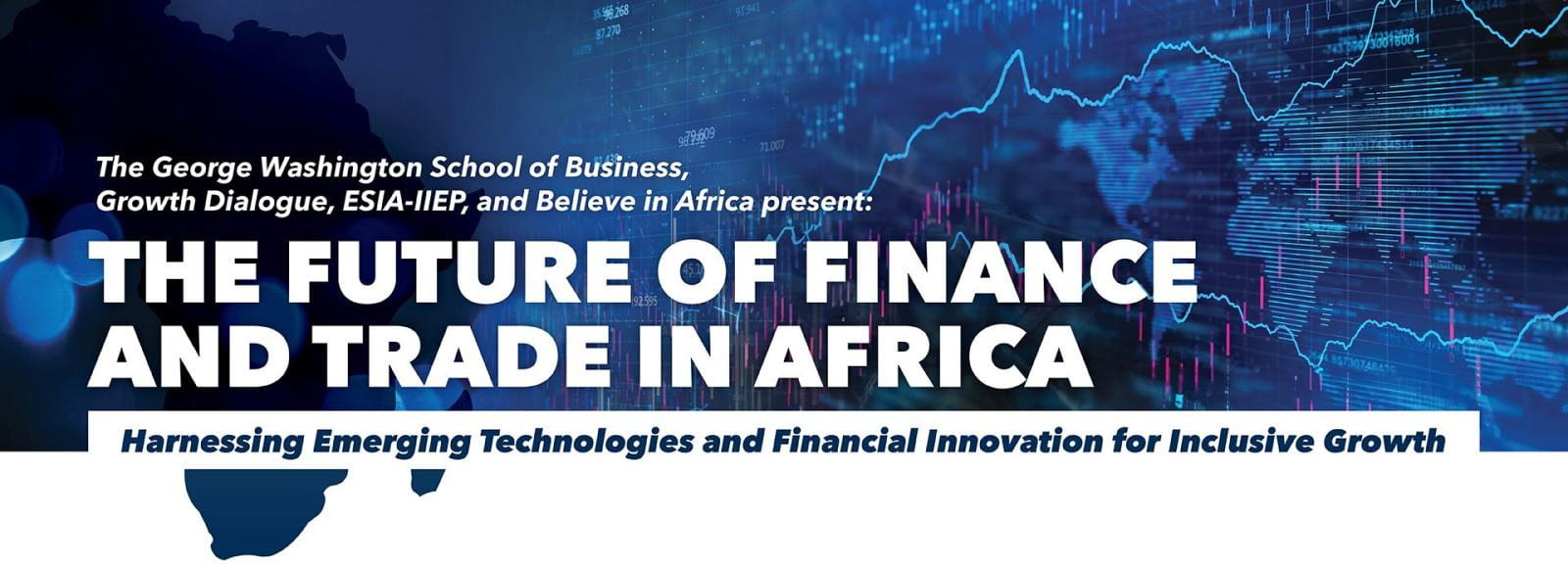
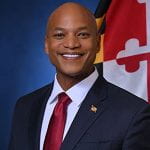 Wes Moore is the 63rd Governor of the state of Maryland. He is Maryland’s first Black Governor in the state’s 246-year history, and is just the third African American elected Governor in the history of the United States. Moore is a proud graduate of Valley Forge Military Academy and College, where he received an Associate’s degree in 1998, and was commissioned as a second lieutenant in the U.S. Army. Afterward, he went on to earn his Bachelor’s in international relations and economics at Johns Hopkins University in Baltimore, where he graduated Phi Beta Kappa. While at Johns Hopkins, Moore interned in the office of former Baltimore Mayor Kurt Schmoke. Moore was the first Black Rhodes Scholar in the history of Johns Hopkins University. As A Rhodes Scholar, he earned a Master’s in international relations from Wolfson College at Oxford. In 2005, Moore deployed to Afghanistan as a captain with the 82nd Airborne Division, leading soldiers in combat. Immediately upon returning home, Moore served as a White House Fellow, advising on issues of national security and international relations.
Wes Moore is the 63rd Governor of the state of Maryland. He is Maryland’s first Black Governor in the state’s 246-year history, and is just the third African American elected Governor in the history of the United States. Moore is a proud graduate of Valley Forge Military Academy and College, where he received an Associate’s degree in 1998, and was commissioned as a second lieutenant in the U.S. Army. Afterward, he went on to earn his Bachelor’s in international relations and economics at Johns Hopkins University in Baltimore, where he graduated Phi Beta Kappa. While at Johns Hopkins, Moore interned in the office of former Baltimore Mayor Kurt Schmoke. Moore was the first Black Rhodes Scholar in the history of Johns Hopkins University. As A Rhodes Scholar, he earned a Master’s in international relations from Wolfson College at Oxford. In 2005, Moore deployed to Afghanistan as a captain with the 82nd Airborne Division, leading soldiers in combat. Immediately upon returning home, Moore served as a White House Fellow, advising on issues of national security and international relations. Congresswoman Sheila Cherfilus-McCormick, the first Black woman to represent Florida’s 20th congressional district, was re-elected to the U.S. House of Representatives in January 2023 to serve a second term. Congresswoman Cherfilus-McCormick is honored to serve on the House Committee on Foreign Affairs and the House Committee on Veterans’ Affairs as the Ranking Member of the Subcommittee on Technology Modernization. She is also the Chair of the Diversity & Inclusion Task Force for the Democratic Women’s Caucus, a Co-Chair of the Haiti Caucus, and serves as a member of the Congressional Black Caucus. Congresswoman Cherfilus-McCormick earned her Bachelor of Arts in Political Science and Government from Howard University. In further pursuit of education, the Congresswoman also earned a Juris Doctorate from St. Thomas University. While in office, she remains committed to tackling the growing housing crisis, inadequate access to quality health care, and lack of equitable opportunities throughout her district and country.
Congresswoman Sheila Cherfilus-McCormick, the first Black woman to represent Florida’s 20th congressional district, was re-elected to the U.S. House of Representatives in January 2023 to serve a second term. Congresswoman Cherfilus-McCormick is honored to serve on the House Committee on Foreign Affairs and the House Committee on Veterans’ Affairs as the Ranking Member of the Subcommittee on Technology Modernization. She is also the Chair of the Diversity & Inclusion Task Force for the Democratic Women’s Caucus, a Co-Chair of the Haiti Caucus, and serves as a member of the Congressional Black Caucus. Congresswoman Cherfilus-McCormick earned her Bachelor of Arts in Political Science and Government from Howard University. In further pursuit of education, the Congresswoman also earned a Juris Doctorate from St. Thomas University. While in office, she remains committed to tackling the growing housing crisis, inadequate access to quality health care, and lack of equitable opportunities throughout her district and country.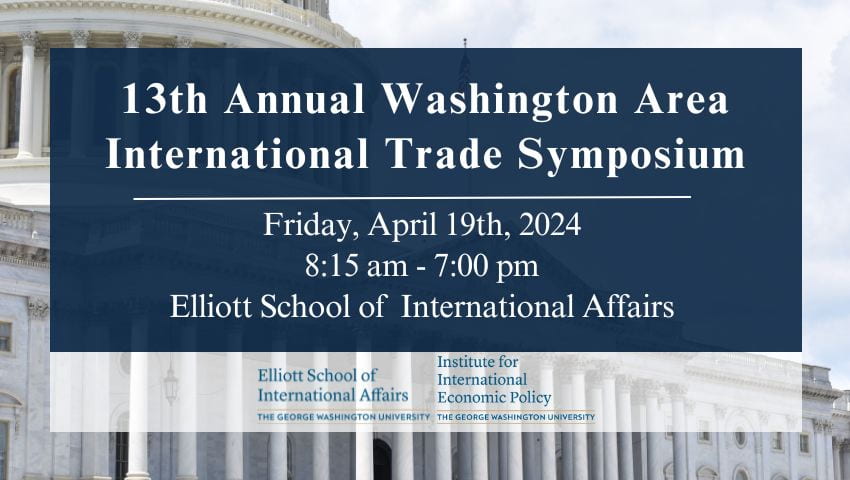
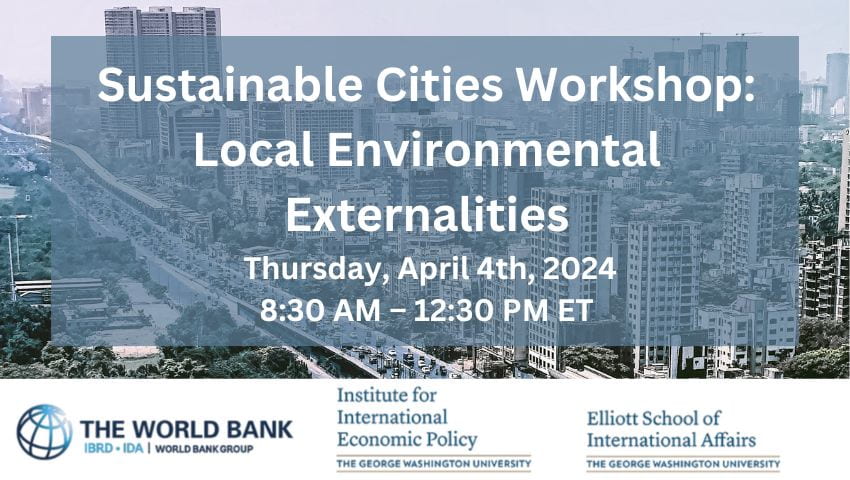
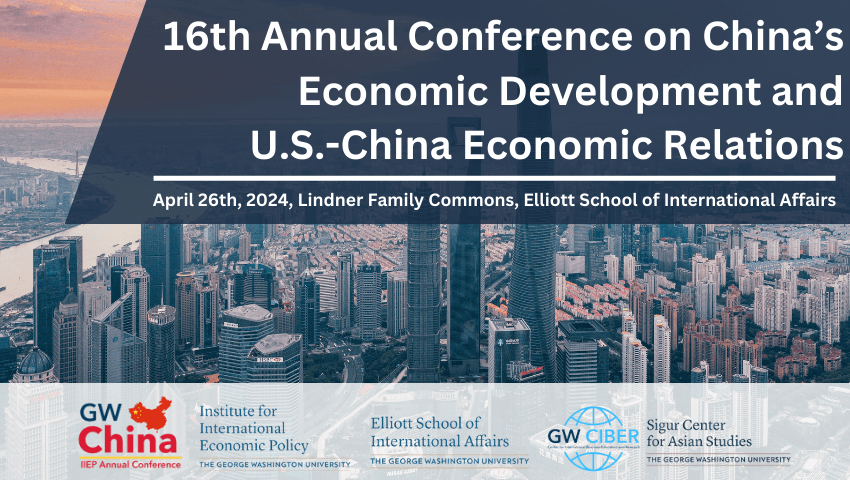
 Sonali Jain-Chandra is Division Chief and Mission Chief for China at the International Monetary Fund’s Asia and Pacific Department. She has wide-ranging country experience at the IMF, having worked on China, India, Hong Kong SAR, Korea, Indonesia, Ethiopia, Cambodia, Nepal and Bhutan. She was also a member of the Regional Studies Division, and has authored many chapters of the IMF publication, Regional Economic Outlook. She previously worked in the IMF’s Strategy, Policy, and Review Department on vulnerabilities in emerging markets and advanced economies. Ms. Jain-Chandra’s research interests and publications have mainly focused on labor markets, capital flows, international banking linkages, and financial inclusion and deepening. She holds a Ph.D. in Economics from Columbia University, a B.A. and M.A. in Philosophy, Politics and Economics from Oxford University, and a B.A. in Economics from Lady Shri Ram College, University of Delhi.
Sonali Jain-Chandra is Division Chief and Mission Chief for China at the International Monetary Fund’s Asia and Pacific Department. She has wide-ranging country experience at the IMF, having worked on China, India, Hong Kong SAR, Korea, Indonesia, Ethiopia, Cambodia, Nepal and Bhutan. She was also a member of the Regional Studies Division, and has authored many chapters of the IMF publication, Regional Economic Outlook. She previously worked in the IMF’s Strategy, Policy, and Review Department on vulnerabilities in emerging markets and advanced economies. Ms. Jain-Chandra’s research interests and publications have mainly focused on labor markets, capital flows, international banking linkages, and financial inclusion and deepening. She holds a Ph.D. in Economics from Columbia University, a B.A. and M.A. in Philosophy, Politics and Economics from Oxford University, and a B.A. in Economics from Lady Shri Ram College, University of Delhi.
 Dr. V. Anantha Nageswaran serves as the Chief Economic Advisor to the Government of India. He wrote a weekly column for Mint for 15 years, as well as co-authored four books. Prior to his current role, Dr. Nageswaran was a part-time member of the Economic Advisory Council to the Prime Minister of India for 2 years and is an honorary senior advisor to the International Financial Services Authority of India. Between 1994 to 2011, he held several positions including Currency Economist at the Union Bank of Switzerland, Head of Research and Investment Consulting in Credit Suisse Private Banking in Asia, and Head of Asia Research and Global Chief Investment Officer at Bank Julius Baer. He graduated from the Indian Institute of Management, Ahmedabad with a Masters in Business Administration and received his PhD in Finance from the University of Massachusetts in Amherst.
Dr. V. Anantha Nageswaran serves as the Chief Economic Advisor to the Government of India. He wrote a weekly column for Mint for 15 years, as well as co-authored four books. Prior to his current role, Dr. Nageswaran was a part-time member of the Economic Advisory Council to the Prime Minister of India for 2 years and is an honorary senior advisor to the International Financial Services Authority of India. Between 1994 to 2011, he held several positions including Currency Economist at the Union Bank of Switzerland, Head of Research and Investment Consulting in Credit Suisse Private Banking in Asia, and Head of Asia Research and Global Chief Investment Officer at Bank Julius Baer. He graduated from the Indian Institute of Management, Ahmedabad with a Masters in Business Administration and received his PhD in Finance from the University of Massachusetts in Amherst.
 is J.P. Morgan’s Chief India Economist and also serves on the Advisory Council to the 15th Finance Commission set up by the Government of India. He has previously worked at the International Monetary Fund (IMF) and McKinsey & Company. He has also previously served as a member of the RBI’s “Expert Committee to Revise and Strengthen the Monetary Policy Framework” that proposed inflation targeting in India, was a consultant to the FRBM Review Committee set up by the government to proposed a new fiscal anchor, and a member of the Indian Banks Association (IBA) Monetary Policy Group. Since 2014, he has been ranked as one of the “Best Individuals in Research in India” by Asset Magazine. He has authored several publications on the Indian economy including co-editing a book on Indian economic reform: “Reforming India’s External, Fiscal and Financial Policies” with Dr. Anne O. Krueger. He received his Ph.D. in economics at Stanford University in 2001.
is J.P. Morgan’s Chief India Economist and also serves on the Advisory Council to the 15th Finance Commission set up by the Government of India. He has previously worked at the International Monetary Fund (IMF) and McKinsey & Company. He has also previously served as a member of the RBI’s “Expert Committee to Revise and Strengthen the Monetary Policy Framework” that proposed inflation targeting in India, was a consultant to the FRBM Review Committee set up by the government to proposed a new fiscal anchor, and a member of the Indian Banks Association (IBA) Monetary Policy Group. Since 2014, he has been ranked as one of the “Best Individuals in Research in India” by Asset Magazine. He has authored several publications on the Indian economy including co-editing a book on Indian economic reform: “Reforming India’s External, Fiscal and Financial Policies” with Dr. Anne O. Krueger. He received his Ph.D. in economics at Stanford University in 2001..webp)





 Junaid Kamal Ahmad is Vice President of Operations at the Multilateral Investment Guarantee Agency (MIGA), the Political Risk Insurance and Credit Enhancement arm of the World Bank Group (WBG). He is responsible for advancing and enhancing MIGA’s brand partnering across WBG and with financial institutions, private investors, and development actors to originate and pursue meaningful, impact-driven projects. Mr. Ahmad also leads the Operations team of the Agency to deliver on MIGA’s mandate of mobilizing private finance for development projects in emerging markets and developing economies (EMDEs).
Junaid Kamal Ahmad is Vice President of Operations at the Multilateral Investment Guarantee Agency (MIGA), the Political Risk Insurance and Credit Enhancement arm of the World Bank Group (WBG). He is responsible for advancing and enhancing MIGA’s brand partnering across WBG and with financial institutions, private investors, and development actors to originate and pursue meaningful, impact-driven projects. Mr. Ahmad also leads the Operations team of the Agency to deliver on MIGA’s mandate of mobilizing private finance for development projects in emerging markets and developing economies (EMDEs).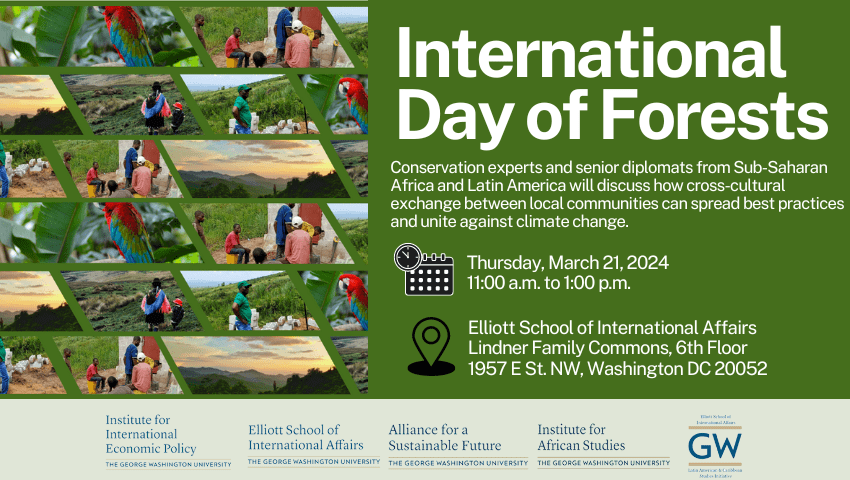





 Indermit Gill is Chief Economist of the World Bank Group and Senior Vice President for Development Economics.
Indermit Gill is Chief Economist of the World Bank Group and Senior Vice President for Development Economics.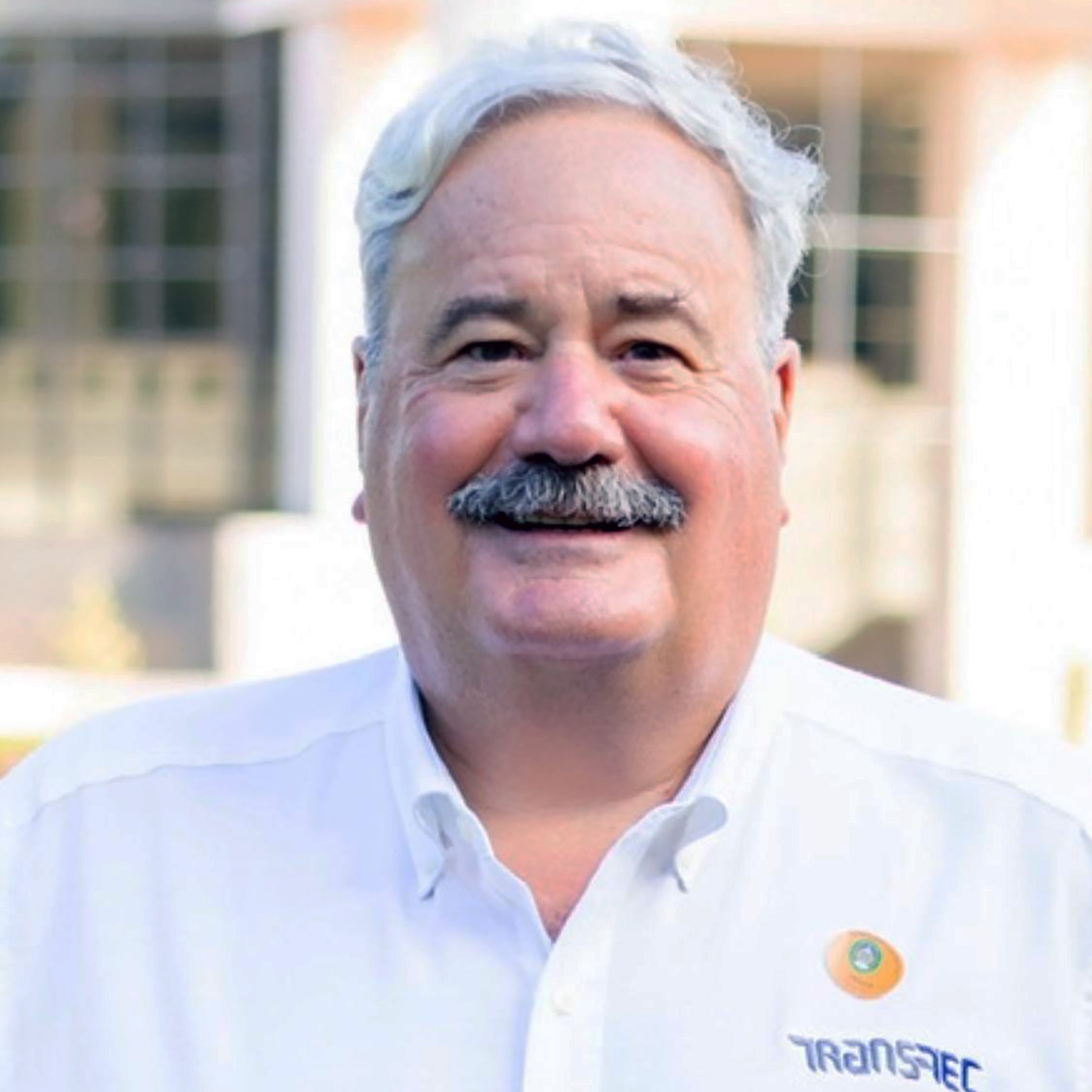 Christopher Fussner founded and owns TransTechnology Pte. Ltd. in Singapore in 1988, a major distributor of surface mount technology and semiconductor capital equipment. Headquartered in Singapore, Trans-Tec has 235 employees worldwide with offices in China, India, Japan, Malaysia, Mexico, Thailand, United States, and Vietnam. He has had extensive experience in negotiating and establishing joint ventures, strategic alliances, licenses, distribution networks and sales worldwide. In addition, Mr. Fussner is also founder and owner of Certain Cellars Pte. Ltd. in Singapore, an importer and distributor of fine wines. Prior to forming these companies, Mr. Fussner headed Asia sales for Amistar Corporation based in Seoul, Korea and Singapore. As such, he was responsible for sales and service for electronics manufacturing industry machines in Australia, Asia, and India.
Christopher Fussner founded and owns TransTechnology Pte. Ltd. in Singapore in 1988, a major distributor of surface mount technology and semiconductor capital equipment. Headquartered in Singapore, Trans-Tec has 235 employees worldwide with offices in China, India, Japan, Malaysia, Mexico, Thailand, United States, and Vietnam. He has had extensive experience in negotiating and establishing joint ventures, strategic alliances, licenses, distribution networks and sales worldwide. In addition, Mr. Fussner is also founder and owner of Certain Cellars Pte. Ltd. in Singapore, an importer and distributor of fine wines. Prior to forming these companies, Mr. Fussner headed Asia sales for Amistar Corporation based in Seoul, Korea and Singapore. As such, he was responsible for sales and service for electronics manufacturing industry machines in Australia, Asia, and India.

 Kim Samuel is a Visiting Scholar at the Oxford Poverty and Human Development Initiative, where she studies the relationship between social isolation and multidimensional poverty as well as the broader link between human belonging and well-being. She is the founder of the Samuel Centre for Social Connectedness and an academic lecturer at institutions including Oxford, Harvard, and McGill universities. Kim is the author of
Kim Samuel is a Visiting Scholar at the Oxford Poverty and Human Development Initiative, where she studies the relationship between social isolation and multidimensional poverty as well as the broader link between human belonging and well-being. She is the founder of the Samuel Centre for Social Connectedness and an academic lecturer at institutions including Oxford, Harvard, and McGill universities. Kim is the author of  Prenika Anand is a Leslie Kirkley Visitor at the Oxford Institute of Population Ageing. Prenika has completed an MSc in Applied Digital Health from the Nuffield Department of Primary Care Health Sciences, University of Oxford. She holds a Masters degree in Health Administration from Tata Institute of Social Sciences, Mumbai, and a Bachelor’s degree in Dental Surgery. Her professional experience includes product management and consulting for preventive health, workplace well-being, economic incentives for healthy behaviors and digital health management ecosystem.
Prenika Anand is a Leslie Kirkley Visitor at the Oxford Institute of Population Ageing. Prenika has completed an MSc in Applied Digital Health from the Nuffield Department of Primary Care Health Sciences, University of Oxford. She holds a Masters degree in Health Administration from Tata Institute of Social Sciences, Mumbai, and a Bachelor’s degree in Dental Surgery. Her professional experience includes product management and consulting for preventive health, workplace well-being, economic incentives for healthy behaviors and digital health management ecosystem. Associate at OPHI and a Post-Doctoral Fellow of the Consejo Nacional de Investigaciones Cientificas y Tecnicas (CONICET), Argentina. Her research interests include the measurement and analysis of chronic and multidimensional poverty, the quality of education, its determinants, and its role for poverty persistence. She is particularly interested in Latin American countries.
Associate at OPHI and a Post-Doctoral Fellow of the Consejo Nacional de Investigaciones Cientificas y Tecnicas (CONICET), Argentina. Her research interests include the measurement and analysis of chronic and multidimensional poverty, the quality of education, its determinants, and its role for poverty persistence. She is particularly interested in Latin American countries. James Foster is the Oliver T. Carr, Jr., Professor of International Affairs and Professor of Economics at the George Washington University. He is also a Research Associate at the Oxford Poverty and Human Development Initiative at Oxford University. Professor Foster’s research focuses on welfare economics — using economic tools to evaluate and enhance the wellbeing of people. His work underlies many well-known social indices including the FGT poverty measures, the global Multidimensional Poverty Index (MPI), dozens of national MPIs used to guide domestic policy against poverty, the Women’s Empowerment in Agriculture Index (WEAI) at USAID, the Gross National Happiness Index of Bhutan, the Better Jobs Index of the InterAmerican Development Bank, and the Statistical Performance Index of the World Bank. Prof. Foster received his PhD in Economics from Cornell University and has a Doctorate Honoris Causa from Universidad Autónoma del Estado Hidalgo (Mexico).
James Foster is the Oliver T. Carr, Jr., Professor of International Affairs and Professor of Economics at the George Washington University. He is also a Research Associate at the Oxford Poverty and Human Development Initiative at Oxford University. Professor Foster’s research focuses on welfare economics — using economic tools to evaluate and enhance the wellbeing of people. His work underlies many well-known social indices including the FGT poverty measures, the global Multidimensional Poverty Index (MPI), dozens of national MPIs used to guide domestic policy against poverty, the Women’s Empowerment in Agriculture Index (WEAI) at USAID, the Gross National Happiness Index of Bhutan, the Better Jobs Index of the InterAmerican Development Bank, and the Statistical Performance Index of the World Bank. Prof. Foster received his PhD in Economics from Cornell University and has a Doctorate Honoris Causa from Universidad Autónoma del Estado Hidalgo (Mexico). 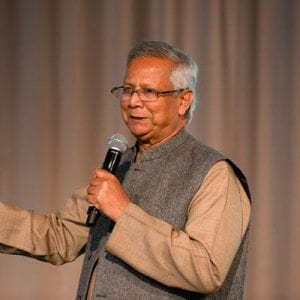 Nobel Laureate Professor Muhammad Yunus is the founder of Grameen Bank, pioneering the concepts of microcredit and social business, founding more than 50 Social Business companies in Bangladesh. For his constant innovation and enterprise, the Fortune Magazine named Professor Yunus in March 2012 as “one of the greatest entrepreneurs of our time.” At the Opening Ceremony of the Olympic Games Tokyo 2020 Professor Yunus was conferred with the Olympic Laurel award for his extensive work in sports for development, bringing the concept of social business to the sports world.
Nobel Laureate Professor Muhammad Yunus is the founder of Grameen Bank, pioneering the concepts of microcredit and social business, founding more than 50 Social Business companies in Bangladesh. For his constant innovation and enterprise, the Fortune Magazine named Professor Yunus in March 2012 as “one of the greatest entrepreneurs of our time.” At the Opening Ceremony of the Olympic Games Tokyo 2020 Professor Yunus was conferred with the Olympic Laurel award for his extensive work in sports for development, bringing the concept of social business to the sports world.
 is an expert in entrepreneurial strategy, skills development, and digital employee management platforms. She is the Founder of Global Talent Track, a leading vocational skills company that uses a blended learning model to bridge academia and the industry. She is the Co-Founder of 5F World, a platform for global consulting, investing, and mentoring in digital skills and digital transformation for start-ups and social enterprises, and has authored multiple books on knowledge, management, and digital success.
is an expert in entrepreneurial strategy, skills development, and digital employee management platforms. She is the Founder of Global Talent Track, a leading vocational skills company that uses a blended learning model to bridge academia and the industry. She is the Co-Founder of 5F World, a platform for global consulting, investing, and mentoring in digital skills and digital transformation for start-ups and social enterprises, and has authored multiple books on knowledge, management, and digital success. ational. He is a former Lead Economist at the World Bank and former consultant at the International Labour Organization, the United Nations Conference on Trade and Development, and UNICEF. He previously was a Professor of Economics at Oxford University and Delhi University. He is an expert on topics including economic growth, macroeconomic policy, poverty, employment, entrepreneurship, urbanization, gender trade, decentralization, and agriculture.
ational. He is a former Lead Economist at the World Bank and former consultant at the International Labour Organization, the United Nations Conference on Trade and Development, and UNICEF. He previously was a Professor of Economics at Oxford University and Delhi University. He is an expert on topics including economic growth, macroeconomic policy, poverty, employment, entrepreneurship, urbanization, gender trade, decentralization, and agriculture. is an associate professor of Economics and International Affairs at the Elliott School and the Department of Economics of George Washington University, the Director of the Institute for International Economic Policy and the Director of the ESIA Initiative on Climate Change and Sustainable Cities at George Washington University, and an Affiliated Scholar of the Marron Institute of Urban Management at New York University. Professor Jedwab’s main fields of research are urban and real estate economics, development and growth, environmental economics, and labor economics. Some of the issues he has studied include urbanization and structural transformation, urban construction and climate change, the economic determinants and effects of transportation infrastructure, and the roles of institutions, human capital and technology in development and growth. He is the co-founder and co-organizer of the World Bank-GWU Urbanization and Poverty Reduction Conference and the Washington Area Development Economics Symposium.
is an associate professor of Economics and International Affairs at the Elliott School and the Department of Economics of George Washington University, the Director of the Institute for International Economic Policy and the Director of the ESIA Initiative on Climate Change and Sustainable Cities at George Washington University, and an Affiliated Scholar of the Marron Institute of Urban Management at New York University. Professor Jedwab’s main fields of research are urban and real estate economics, development and growth, environmental economics, and labor economics. Some of the issues he has studied include urbanization and structural transformation, urban construction and climate change, the economic determinants and effects of transportation infrastructure, and the roles of institutions, human capital and technology in development and growth. He is the co-founder and co-organizer of the World Bank-GWU Urbanization and Poverty Reduction Conference and the Washington Area Development Economics Symposium. atarajan is the Co-Founder of 5F World, a platform for global consulting, investing, and mentoring in digital skills and digital transformation for start-ups and social enterprises. He is the Chairman of Honeywell Automation India and Lighthouse Communities Foundation, as well as a Central Board Member of the State Bank of India, Global Talent Track, and AVPN Singapore.
atarajan is the Co-Founder of 5F World, a platform for global consulting, investing, and mentoring in digital skills and digital transformation for start-ups and social enterprises. He is the Chairman of Honeywell Automation India and Lighthouse Communities Foundation, as well as a Central Board Member of the State Bank of India, Global Talent Track, and AVPN Singapore. is the Executive Chair and Founder of Harmonia Holdings Group, LLC. She serves on the Fairfax Economic Development Authority Board, Asian American Chamber of Commerce Board, George Mason University President’s Innovation Advisory Council, The Indus Entrepreneurs (TiE) DC Board, Northern Virginia’s Chamber of Commerce Strategic Leadership Board of Advisors, and as an Officer of the Harvard Club of Washington DC. She was named one of the Top 25 Female CEOs in the DMV in 2008 and received the US President’s Volunteer Service Award in 2021
is the Executive Chair and Founder of Harmonia Holdings Group, LLC. She serves on the Fairfax Economic Development Authority Board, Asian American Chamber of Commerce Board, George Mason University President’s Innovation Advisory Council, The Indus Entrepreneurs (TiE) DC Board, Northern Virginia’s Chamber of Commerce Strategic Leadership Board of Advisors, and as an Officer of the Harvard Club of Washington DC. She was named one of the Top 25 Female CEOs in the DMV in 2008 and received the US President’s Volunteer Service Award in 2021


 l is president emeritus and a senior fellow at the Center for Global Development, a policy-oriented research institution that opened its doors in Washington, DC in October 2001. Prior to launching the Center, Birdsall served for three years as senior associate and director of the Economic Reform Project at the Carnegie Endowment for International Peace. Her work at Carnegie focused on issues of globalization and inequality, as well as on the reform of the international financial institutions.
l is president emeritus and a senior fellow at the Center for Global Development, a policy-oriented research institution that opened its doors in Washington, DC in October 2001. Prior to launching the Center, Birdsall served for three years as senior associate and director of the Economic Reform Project at the Carnegie Endowment for International Peace. Her work at Carnegie focused on issues of globalization and inequality, as well as on the reform of the international financial institutions. Ana Palacio was the first woman to serve as Foreign Minister of Spain, from 2002-2004. Before this, she was a member of the Spanish Parliament, where she chaired the Joint Committee of the two Houses for European Affairs. She also served as a member of the European Parliament, where she chaired the Legal Affairs and Internal Market Committee, the Justice and Home Affairs Committee and the Conference of the Committee Chairs, the most senior decision-making body on legislative policy and programs. As the Head of the Spanish Delegation to the European Union’s Intergovernmental Conference and a member of the Presidium of the Convention, Ms. Palacio was at the forefront of the debate on the future of the European Union and drafted and led legal discussions on the European Treaties reform.
Ana Palacio was the first woman to serve as Foreign Minister of Spain, from 2002-2004. Before this, she was a member of the Spanish Parliament, where she chaired the Joint Committee of the two Houses for European Affairs. She also served as a member of the European Parliament, where she chaired the Legal Affairs and Internal Market Committee, the Justice and Home Affairs Committee and the Conference of the Committee Chairs, the most senior decision-making body on legislative policy and programs. As the Head of the Spanish Delegation to the European Union’s Intergovernmental Conference and a member of the Presidium of the Convention, Ms. Palacio was at the forefront of the debate on the future of the European Union and drafted and led legal discussions on the European Treaties reform.
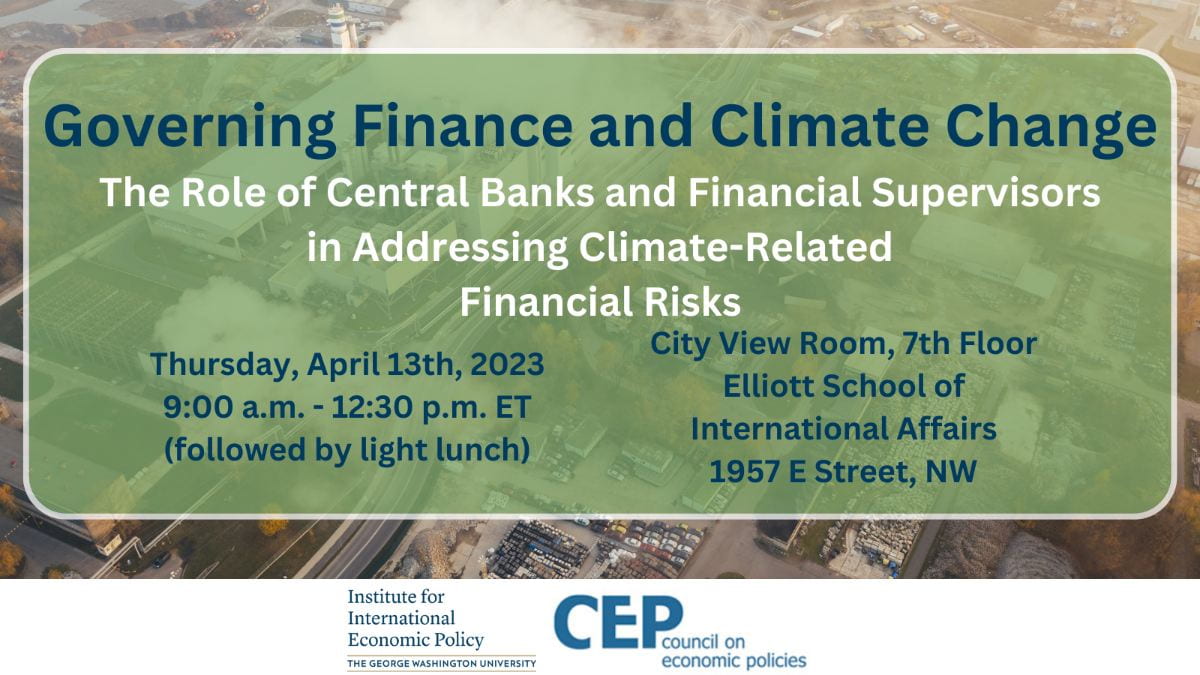
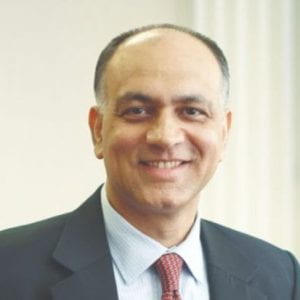 Sunil Sharma is a Distinguished Visiting Scholar at the Institute for International Economic Policy, Elliott School of International Affairs, The George Washington University, Washington DC, USA, and a Senior Associate at the Council on Economic Policies, Zurich, Switzerland. He was the Assistant Director in the IMF’s Research Department from 2015-2018, and the Director of the IMF-Singapore Regional Training Institute (STI) in Singapore from 2006-2015. Before moving to Singapore in 2006, Sunil was Chief of the IMF Institute’s Asian Division in Washington, D.C. Prior to joining the IMF in 1992, he was on the Economics faculty at the University of California, Los Angeles (UCLA).
Sunil Sharma is a Distinguished Visiting Scholar at the Institute for International Economic Policy, Elliott School of International Affairs, The George Washington University, Washington DC, USA, and a Senior Associate at the Council on Economic Policies, Zurich, Switzerland. He was the Assistant Director in the IMF’s Research Department from 2015-2018, and the Director of the IMF-Singapore Regional Training Institute (STI) in Singapore from 2006-2015. Before moving to Singapore in 2006, Sunil was Chief of the IMF Institute’s Asian Division in Washington, D.C. Prior to joining the IMF in 1992, he was on the Economics faculty at the University of California, Los Angeles (UCLA). Sarah Bloom Raskin, the former deputy secretary of the U.S. Department of the Treasury, was named the Colin W. Brown Distinguished Professor of the Practice of Law in 2021. She is also a senior fellow in the Duke Center on Risk. Raskin was previously a visiting professor of the practice of law at Duke and a Rubenstein Fellow.
Sarah Bloom Raskin, the former deputy secretary of the U.S. Department of the Treasury, was named the Colin W. Brown Distinguished Professor of the Practice of Law in 2021. She is also a senior fellow in the Duke Center on Risk. Raskin was previously a visiting professor of the practice of law at Duke and a Rubenstein Fellow. Timothy Lane served as Deputy Governor from February 2009 until his retirement from the Bank of Canada in September 2022.
Timothy Lane served as Deputy Governor from February 2009 until his retirement from the Bank of Canada in September 2022. James Talbot is Director of the International Department at the Bank of England. He is also the Chair of the Workstream on Monetary Policy of the Central Banks and Supervisors Network for Greening the Financial System (NGFS). James’ other roles at the Bank of England have included: Head of Monetary Assessment and Strategy Division, advising the MPC on Monetary Policy tools, implementation and strategy; working as a senior adviser on domestic and European macroprudential policy issues; and leading the preparation of the MPC’s quarterly UK forecast. James was UK Alternate Executive Director at the IMF from September 2008- September 2010.
James Talbot is Director of the International Department at the Bank of England. He is also the Chair of the Workstream on Monetary Policy of the Central Banks and Supervisors Network for Greening the Financial System (NGFS). James’ other roles at the Bank of England have included: Head of Monetary Assessment and Strategy Division, advising the MPC on Monetary Policy tools, implementation and strategy; working as a senior adviser on domestic and European macroprudential policy issues; and leading the preparation of the MPC’s quarterly UK forecast. James was UK Alternate Executive Director at the IMF from September 2008- September 2010. Alexander Barkawi is the founder and director of CEP. Prior to his decision to build up CEP, he was the managing director of SAM Indexes and thus responsible for developing the Dow Jones Sustainability Indexes (DJSI) into a key reference point for sustainability investing. Before joining SAM, Alex took the lead in internationalizing the activities of oikos – an organization that today promotes sustainability in teaching and research of economics and management at more than 40 universities worldwide. Alex is a graduate in economics (M.A.) of the University of St. Gallen, Switzerland, where he also wrote his PhD thesis on “Social Change in Egypt in the 1990s”. He grew up in Germany and Egypt and today lives in Zurich, Switzerland.
Alexander Barkawi is the founder and director of CEP. Prior to his decision to build up CEP, he was the managing director of SAM Indexes and thus responsible for developing the Dow Jones Sustainability Indexes (DJSI) into a key reference point for sustainability investing. Before joining SAM, Alex took the lead in internationalizing the activities of oikos – an organization that today promotes sustainability in teaching and research of economics and management at more than 40 universities worldwide. Alex is a graduate in economics (M.A.) of the University of St. Gallen, Switzerland, where he also wrote his PhD thesis on “Social Change in Egypt in the 1990s”. He grew up in Germany and Egypt and today lives in Zurich, Switzerland. Sarah Dougherty focuses on financial regulations related to climate change and green banks, as well as growing finance and economics expertise within NRDC. Before joining NRDC in 2015, Dougherty worked at the Federal Reserve Bank of Atlanta where she held various roles, including as a research analyst covering the energy industry, writing monetary policy briefs, and leading economic education in public affairs. She also helped to create the Green Bank Network of existing green banks, served on the Washington, D.C., Green Bank Advisory Committee to set up a city-level green bank, and worked in Chile and Mexico to support the nations’ green finance efforts. Other previous work includes positions at the Coalition for Green Capital, C2ES (a small solar EPC firm), and the Federal Home Loan Bank of Atlanta. Dougherty holds a master’s degree in economics and is based in Atlanta.
Sarah Dougherty focuses on financial regulations related to climate change and green banks, as well as growing finance and economics expertise within NRDC. Before joining NRDC in 2015, Dougherty worked at the Federal Reserve Bank of Atlanta where she held various roles, including as a research analyst covering the energy industry, writing monetary policy briefs, and leading economic education in public affairs. She also helped to create the Green Bank Network of existing green banks, served on the Washington, D.C., Green Bank Advisory Committee to set up a city-level green bank, and worked in Chile and Mexico to support the nations’ green finance efforts. Other previous work includes positions at the Coalition for Green Capital, C2ES (a small solar EPC firm), and the Federal Home Loan Bank of Atlanta. Dougherty holds a master’s degree in economics and is based in Atlanta. Paul Hiebert heads the Systemic Risk and Financial Institutions Division of the European Central Bank (ECB). In this role, he leads systemic risk analysis for the euro area feeding into the ECB’s flagship Financial Stability Review, as well as macroprudential policy for the largest euro area banks. Since 2019 he has been leading climate-related risk and financial stability analysis with the corresponding publication of the ECB’s and ESRB’s annual report. His current role builds on over 20 years of experience within the ECB, the International Monetary Fund, the Reserve Bank of Australia and the Canadian Department of Finance in various capacities—spanning economic, financial and policy functions for a wide range of countries. He has published on a diverse set of topics, including financial cycles, global banking, climate change issues, macroprudential policy, housing markets, and fiscal policy. He holds an M.A. in Economics from McGill University in Montréal.
Paul Hiebert heads the Systemic Risk and Financial Institutions Division of the European Central Bank (ECB). In this role, he leads systemic risk analysis for the euro area feeding into the ECB’s flagship Financial Stability Review, as well as macroprudential policy for the largest euro area banks. Since 2019 he has been leading climate-related risk and financial stability analysis with the corresponding publication of the ECB’s and ESRB’s annual report. His current role builds on over 20 years of experience within the ECB, the International Monetary Fund, the Reserve Bank of Australia and the Canadian Department of Finance in various capacities—spanning economic, financial and policy functions for a wide range of countries. He has published on a diverse set of topics, including financial cycles, global banking, climate change issues, macroprudential policy, housing markets, and fiscal policy. He holds an M.A. in Economics from McGill University in Montréal. Mark Levonian was most recently Managing Director and Global Head for Enterprise Economics and Risk Analysis at Promontory Financial Group. He was formerly Senior Deputy Comptroller for Economics at the US Office of the Comptroller of the Currency (OCC), where he served as a key advisor to the Comptroller before, during, and after the global financial crisis. Mark oversaw quantitative examination support and policy research for the OCC and was closely involved in policy responses to the financial crisis, including the development of bank stress testing. As a senior regulatory official and economist, he led or participated in various Basel Committee initiatives related to economic modeling and played a leading role in the development of rules and guidance for multiple generations of the Basel capital framework. Prior to joining the OCC, Mark was Vice President for Banking Supervision and Regulation and Economic Research Officer at the Federal Reserve Bank of San Francisco, Manager of the Banking Studies Department at the New York Fed, Lecturer in Finance at the University of California’s Haas School of Business, and Senior Economist at the Reserve Bank of Australia. He has been an adviser/consultant to the World Bank, the IMF, and the central banks of Russia and Belarus.
Mark Levonian was most recently Managing Director and Global Head for Enterprise Economics and Risk Analysis at Promontory Financial Group. He was formerly Senior Deputy Comptroller for Economics at the US Office of the Comptroller of the Currency (OCC), where he served as a key advisor to the Comptroller before, during, and after the global financial crisis. Mark oversaw quantitative examination support and policy research for the OCC and was closely involved in policy responses to the financial crisis, including the development of bank stress testing. As a senior regulatory official and economist, he led or participated in various Basel Committee initiatives related to economic modeling and played a leading role in the development of rules and guidance for multiple generations of the Basel capital framework. Prior to joining the OCC, Mark was Vice President for Banking Supervision and Regulation and Economic Research Officer at the Federal Reserve Bank of San Francisco, Manager of the Banking Studies Department at the New York Fed, Lecturer in Finance at the University of California’s Haas School of Business, and Senior Economist at the Reserve Bank of Australia. He has been an adviser/consultant to the World Bank, the IMF, and the central banks of Russia and Belarus. William White is currently a Senior Fellow at the C.D. Howe Institute in Toronto. He is also an Advisor to the Council on Economic Policies. From 2009 until March 2018, he served as Chair of the Economic and Development Review Committee at the OECD in Paris. Prior to that, he spent fourteen years as Economic Adviser at the Bank for International Settlements (BIS) in Basel. In that role, he was responsible for all BIS research, data collection, and the organization of meetings for central bankers from around the world. Before joining the BIS in 1994, he was the Deputy Governor responsible for international affairs at the Bank of Canada in Ottawa.
William White is currently a Senior Fellow at the C.D. Howe Institute in Toronto. He is also an Advisor to the Council on Economic Policies. From 2009 until March 2018, he served as Chair of the Economic and Development Review Committee at the OECD in Paris. Prior to that, he spent fourteen years as Economic Adviser at the Bank for International Settlements (BIS) in Basel. In that role, he was responsible for all BIS research, data collection, and the organization of meetings for central bankers from around the world. Before joining the BIS in 1994, he was the Deputy Governor responsible for international affairs at the Bank of Canada in Ottawa. Harry Harding is Yushan Scholar and University Chair Professor in the College of Social Science at National Cheng Chi University in Taiwan and University Professor Emeritus and Professor Emeritus of Public Policy at the University of Virginia, where he is also a Faculty Senior Fellow at the Miller Center of Public Affairs. He has previously held visiting or adjunct appointments at the Hoover Institution at Stanford, the University of Washington, the Chinese University of Hong Kong, the University of Sydney, the University of Hong Kong, the Hong Kong University of Science and Technology, and National Cheng Chi University.
Harry Harding is Yushan Scholar and University Chair Professor in the College of Social Science at National Cheng Chi University in Taiwan and University Professor Emeritus and Professor Emeritus of Public Policy at the University of Virginia, where he is also a Faculty Senior Fellow at the Miller Center of Public Affairs. He has previously held visiting or adjunct appointments at the Hoover Institution at Stanford, the University of Washington, the Chinese University of Hong Kong, the University of Sydney, the University of Hong Kong, the Hong Kong University of Science and Technology, and National Cheng Chi University. Anabel González (Costa Rica) has served as WTO Deputy Director-General since June 2021. Ms. González is a renowned global expert on trade, investment and economic development with a proven managerial track record in international organizations and the public sector. In government, Ms Gonzalez served as Minister of Foreign Trade of Costa Rica; Special Ambassador and Chief Negotiator; Vice-Minister of Trade and Director-General for Trade Negotiations. She also worked as Director-General of the Costa Rican Investment Promotion Agency (CINDE). Ms González also served at the World Bank as Senior Director of the Global Practice on Trade and Competitiveness, the WTO as Director of the Agriculture and Commodities Division and as Senior Consultant with the Inter-American Development Bank. More recently, Ms González has worked as a Non-Resident Senior Fellow with the Peterson Institute for International Economics, where she hosted the virtual series Trade Winds, and as Senior Advisor to the Boston Consulting Group. Ms González obtained her master’s degree from Georgetown University Law Center with the highest academic distinction and has published extensively and lectured across the world on trade, investment and economic development.
Anabel González (Costa Rica) has served as WTO Deputy Director-General since June 2021. Ms. González is a renowned global expert on trade, investment and economic development with a proven managerial track record in international organizations and the public sector. In government, Ms Gonzalez served as Minister of Foreign Trade of Costa Rica; Special Ambassador and Chief Negotiator; Vice-Minister of Trade and Director-General for Trade Negotiations. She also worked as Director-General of the Costa Rican Investment Promotion Agency (CINDE). Ms González also served at the World Bank as Senior Director of the Global Practice on Trade and Competitiveness, the WTO as Director of the Agriculture and Commodities Division and as Senior Consultant with the Inter-American Development Bank. More recently, Ms González has worked as a Non-Resident Senior Fellow with the Peterson Institute for International Economics, where she hosted the virtual series Trade Winds, and as Senior Advisor to the Boston Consulting Group. Ms González obtained her master’s degree from Georgetown University Law Center with the highest academic distinction and has published extensively and lectured across the world on trade, investment and economic development. Aaditya Mattoo is Chief Economist of the East Asia and Pacific Region of the World Bank. He specializes in development, trade and international cooperation, and provides policy advice to governments. He is also Co-Director of the World Development Report 2020 on Global Value Chains. Prior to this he was the Research Manager, Trade and Integration, at the World Bank. Before he joined the Bank, Mr. Mattoo was Economic Counsellor at the World Trade Organization and taught economics at the University of Sussex and Churchill College, Cambridge University. He holds a Ph.D. in Economics from the University of Cambridge, and an M.Phil in Economics from the University of Oxford. He has published on development, trade, trade in services, and international trade agreements in academic and other journals and his work has been cited in the Economist, Financial Times, New York Times, and Time Magazine.
Aaditya Mattoo is Chief Economist of the East Asia and Pacific Region of the World Bank. He specializes in development, trade and international cooperation, and provides policy advice to governments. He is also Co-Director of the World Development Report 2020 on Global Value Chains. Prior to this he was the Research Manager, Trade and Integration, at the World Bank. Before he joined the Bank, Mr. Mattoo was Economic Counsellor at the World Trade Organization and taught economics at the University of Sussex and Churchill College, Cambridge University. He holds a Ph.D. in Economics from the University of Cambridge, and an M.Phil in Economics from the University of Oxford. He has published on development, trade, trade in services, and international trade agreements in academic and other journals and his work has been cited in the Economist, Financial Times, New York Times, and Time Magazine. Richard Baldwin is Professor of International Economics at the Graduate Institute, Geneva since 1991, and Editor-in-Chief of Vox since he founded it in June 2007. He was President/Director of CEPR (2014-2018), and a visiting professor at Oxford (2012-2015), and MIT (2003). In terms of government service, he was a Senior Staff Economist for the President’s Council of Economic Advisors in the Bush Administration (1990-1991) on leave from Columbia University Business School where he was Associate Professor. He did his PhD in Economics at MIT with Paul Krugman with whom he has co-authored several articles. He advises governments and international organisation around the world, and is the author of numerous books and articles on international trade, globalisation, regionalism, and European integration. His 2016 book, The Great Convergence: Information Technology and the New Globalisation, was listed by Lawrence Summers as one of the five most important books on globalisation ever. His latest book, The Globotics Upheaval: Globalization, Robotics, and the Future of Work, was published in February 2019.
Richard Baldwin is Professor of International Economics at the Graduate Institute, Geneva since 1991, and Editor-in-Chief of Vox since he founded it in June 2007. He was President/Director of CEPR (2014-2018), and a visiting professor at Oxford (2012-2015), and MIT (2003). In terms of government service, he was a Senior Staff Economist for the President’s Council of Economic Advisors in the Bush Administration (1990-1991) on leave from Columbia University Business School where he was Associate Professor. He did his PhD in Economics at MIT with Paul Krugman with whom he has co-authored several articles. He advises governments and international organisation around the world, and is the author of numerous books and articles on international trade, globalisation, regionalism, and European integration. His 2016 book, The Great Convergence: Information Technology and the New Globalisation, was listed by Lawrence Summers as one of the five most important books on globalisation ever. His latest book, The Globotics Upheaval: Globalization, Robotics, and the Future of Work, was published in February 2019.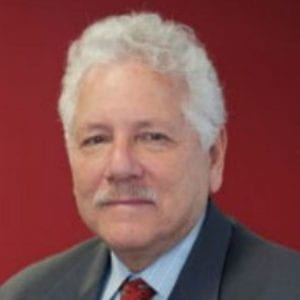 Dr. Danny Leipziger is a Professor of International Business and International Affairs at the George Washington University and Director of the Growth Dialogue. He is a faculty affiliate of the Institute for International Economic Policy. Prior to joining GW, Prof. Leipziger was Vice President for Poverty Reduction and Economic Management at the World Bank (2004-2009). Dr. Leipziger held senior management positions in East Asia and Latin America Regions. He was the World Bank’s Director for Finance, Private Sector, and Infrastructure for Latin America (1998-2004). He served previously in the U.S. Department of State and was a Member of the Secretary’s Policy Planning Staff. Dr. Leipziger was Vice Chair of the Spence Commission on Growth and Development, and he served on the WEF Council on Economic Progress.
Dr. Danny Leipziger is a Professor of International Business and International Affairs at the George Washington University and Director of the Growth Dialogue. He is a faculty affiliate of the Institute for International Economic Policy. Prior to joining GW, Prof. Leipziger was Vice President for Poverty Reduction and Economic Management at the World Bank (2004-2009). Dr. Leipziger held senior management positions in East Asia and Latin America Regions. He was the World Bank’s Director for Finance, Private Sector, and Infrastructure for Latin America (1998-2004). He served previously in the U.S. Department of State and was a Member of the Secretary’s Policy Planning Staff. Dr. Leipziger was Vice Chair of the Spence Commission on Growth and Development, and he served on the WEF Council on Economic Progress.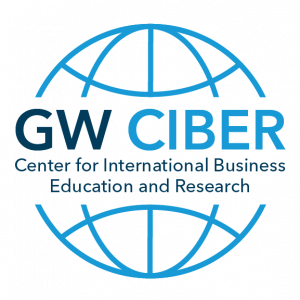
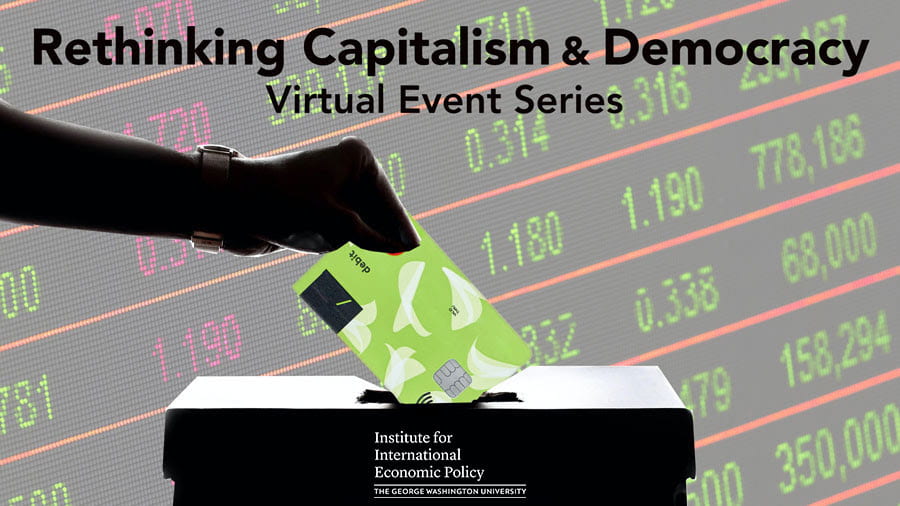
 is Associate Editor and Chief Economics correspondent at the Financial Times. Prior to that he was a senior economist at the World Bank and Director of Studies at the Trade Policy Research Centre, in London. Larry Summers described him as “the world’s preeminent financial journalist,” while economist Kenneth Rogoff has said “He really is the premier financial and economics writer in the world.” Wolf was joint winner of the Wincott Foundation senior prize for excellence in financial journalism in both 1989 and 1997. He won the RTZ David Watt memorial prize in 1994. In 2000. Wolf was awarded the CBE (Commander of the Order of the British Empire). He was awarded the honorary degree of Doctor of Letters, honoris causa, by the University of Nottingham in 2006, and was made Doctor of Science (Economics) of University of London, honoris causa, by the London School of Economics in the same year. In 2018, on the occasion of the KU Leuven Patron Saint‘s Day he received a doctorate honoris causa of the university. In 2019, Wolf received the Gerald Loeb Lifetime Achievement Award from the UCLA Anderson School of Management.
is Associate Editor and Chief Economics correspondent at the Financial Times. Prior to that he was a senior economist at the World Bank and Director of Studies at the Trade Policy Research Centre, in London. Larry Summers described him as “the world’s preeminent financial journalist,” while economist Kenneth Rogoff has said “He really is the premier financial and economics writer in the world.” Wolf was joint winner of the Wincott Foundation senior prize for excellence in financial journalism in both 1989 and 1997. He won the RTZ David Watt memorial prize in 1994. In 2000. Wolf was awarded the CBE (Commander of the Order of the British Empire). He was awarded the honorary degree of Doctor of Letters, honoris causa, by the University of Nottingham in 2006, and was made Doctor of Science (Economics) of University of London, honoris causa, by the London School of Economics in the same year. In 2018, on the occasion of the KU Leuven Patron Saint‘s Day he received a doctorate honoris causa of the university. In 2019, Wolf received the Gerald Loeb Lifetime Achievement Award from the UCLA Anderson School of Management. Joe Zammit-Lucia With extensive experience in the business and political worlds, Dr Joe Zammit-Lucia is an adviser to business leaders focused on leadership in contemporary socio-political culture, an author, public speaker and commentator in the international press on the inter-relationship between business and politics.
Joe Zammit-Lucia With extensive experience in the business and political worlds, Dr Joe Zammit-Lucia is an adviser to business leaders focused on leadership in contemporary socio-political culture, an author, public speaker and commentator in the international press on the inter-relationship between business and politics.
 is a Distinguished Visiting Scholar at the Institute for International Economic Policy, Elliott School of International Affairs, The George Washington University, Washington DC, USA, and a Senior Associate at the Council on Economic Policies, Zurich, Switzerland. He was Assistant Director in the IMF’s Research Department from 2015-2018, and the Director of the IMF-Singapore Regional Training Institute (STI) in Singapore from 2006-2015. Before moving to Singapore in 2006, Sunil was Chief of the IMF Institute’s Asian Division in Washington, D.C. Prior to joining the IMF in 1992, he was on the Economics faculty at the University of California, Los Angeles (UCLA).
is a Distinguished Visiting Scholar at the Institute for International Economic Policy, Elliott School of International Affairs, The George Washington University, Washington DC, USA, and a Senior Associate at the Council on Economic Policies, Zurich, Switzerland. He was Assistant Director in the IMF’s Research Department from 2015-2018, and the Director of the IMF-Singapore Regional Training Institute (STI) in Singapore from 2006-2015. Before moving to Singapore in 2006, Sunil was Chief of the IMF Institute’s Asian Division in Washington, D.C. Prior to joining the IMF in 1992, he was on the Economics faculty at the University of California, Los Angeles (UCLA). Putu Natih supports the OPHI Outreach team and is also a lecturer at the Faculty of Economics and Business, Universitas Indonesia (FEB UI), where she teaches Econometrics for undergraduate and postgraduate students. Putu is also currently supporting Indonesia’s Coordinating Ministry for Human Development and Culture, as a social protection specialist. Before OPHI and FEB UI, Putu was a Statistics Tutor at Keble and St John’s Colleges at the University of Oxford. She also worked as a Research Assistant at the Blavatnik School of Government within a project on digital inequality. Putu completed her undergraduate degree at the Faculty of Economics, Universitas Indonesia and was a Jardine-Oxford Scholar at Trinity College, the University of Oxford, where she studied for her MPhil and DPhil.
Putu Natih supports the OPHI Outreach team and is also a lecturer at the Faculty of Economics and Business, Universitas Indonesia (FEB UI), where she teaches Econometrics for undergraduate and postgraduate students. Putu is also currently supporting Indonesia’s Coordinating Ministry for Human Development and Culture, as a social protection specialist. Before OPHI and FEB UI, Putu was a Statistics Tutor at Keble and St John’s Colleges at the University of Oxford. She also worked as a Research Assistant at the Blavatnik School of Government within a project on digital inequality. Putu completed her undergraduate degree at the Faculty of Economics, Universitas Indonesia and was a Jardine-Oxford Scholar at Trinity College, the University of Oxford, where she studied for her MPhil and DPhil.
 Sola Afolayan works at The Presidency, and is the National Coordinator of the Multidimensional Poverty Index (MPI) project, in Nigeria. The MPI; a poverty measurement and policy tool, is an intervention under the Nigerian Government’s National Poverty Reduction with Growth Strategy (NPRGS), which is used in complement with monetary poverty measurement, to understand the country’s poverty dynamics.In the last 22 years, Sola has led teams and held leadership positions across 23 countries in sub-Saharan Africa and Europe. At these roles, she sought to shape policy discourses in poverty reduction, social protection, budget performance, infrastructure financing, rural electrification, gender related issues, and in deploying public-private partnerships to address conflicts in the Niger Delta region of Nigeria.She describes her career highlight as the recent launch of the Nigeria MPI report by the President of Nigeria, and also in 2015 when she helped set up the framework for a GBP 37 Million programme, where 186kWp solar Photovoltaic (PV) systems each were installed at 11 Clinics and 172 public schools in rural and per-urban areas of Lagos State; resulting in positive health and education outcomes, with over 140,000 homes being solar powered.
Sola Afolayan works at The Presidency, and is the National Coordinator of the Multidimensional Poverty Index (MPI) project, in Nigeria. The MPI; a poverty measurement and policy tool, is an intervention under the Nigerian Government’s National Poverty Reduction with Growth Strategy (NPRGS), which is used in complement with monetary poverty measurement, to understand the country’s poverty dynamics.In the last 22 years, Sola has led teams and held leadership positions across 23 countries in sub-Saharan Africa and Europe. At these roles, she sought to shape policy discourses in poverty reduction, social protection, budget performance, infrastructure financing, rural electrification, gender related issues, and in deploying public-private partnerships to address conflicts in the Niger Delta region of Nigeria.She describes her career highlight as the recent launch of the Nigeria MPI report by the President of Nigeria, and also in 2015 when she helped set up the framework for a GBP 37 Million programme, where 186kWp solar Photovoltaic (PV) systems each were installed at 11 Clinics and 172 public schools in rural and per-urban areas of Lagos State; resulting in positive health and education outcomes, with over 140,000 homes being solar powered. Nicolai Suppa is a Research Associate at OPHI and a Juan de la Cierva Research Fellow at the Centre for Demographic Studies in Barcelona. At OPHI, he works on several research projects. Since 2018, he also co-leads the estimation of the global Multidimensional Poverty Index (global MPI), together with Usha Kanagaratnam and Sabina Alkire.
Nicolai Suppa is a Research Associate at OPHI and a Juan de la Cierva Research Fellow at the Centre for Demographic Studies in Barcelona. At OPHI, he works on several research projects. Since 2018, he also co-leads the estimation of the global Multidimensional Poverty Index (global MPI), together with Usha Kanagaratnam and Sabina Alkire. Kirsten Sehnbruch is a Global Professor of the British Academy and a Distinguished Policy Fellow at the International Inequalities Institute at the London School of Economics and Political Science. Previously, she was a Research Fellow at the Universidad de Chile, and a Senior Lecturer at the University of California, at Berkeley.
Kirsten Sehnbruch is a Global Professor of the British Academy and a Distinguished Policy Fellow at the International Inequalities Institute at the London School of Economics and Political Science. Previously, she was a Research Fellow at the Universidad de Chile, and a Senior Lecturer at the University of California, at Berkeley. Mauricio Apablaza is director of research at the School of Government at the Universidad del Desarrollo, Chile, research associate of the Oxford Poverty and Human Development Initiative (OPHI) at Oxford University and Visiting Fellow at the International Inequalities Institute at London School of Economics and Political Science (LSE). Mauricio is also the director of the programme Conocimiento e Investigación en Personas Mayores (CIPEM) and president of the Chilean Commission for Quality of Employment and former member of the Chilean commission of experts on informal labour. Previously, he worked as Research Officer and Outreach Coordinator at OPHI, at the University of Oxford. Mauricio holds a PhD in Economics from the University of Nottingham and a postdoc at the University of Oxford. His research areas and publications focus on institutions, multidimensionality, and poverty dynamics.
Mauricio Apablaza is director of research at the School of Government at the Universidad del Desarrollo, Chile, research associate of the Oxford Poverty and Human Development Initiative (OPHI) at Oxford University and Visiting Fellow at the International Inequalities Institute at London School of Economics and Political Science (LSE). Mauricio is also the director of the programme Conocimiento e Investigación en Personas Mayores (CIPEM) and president of the Chilean Commission for Quality of Employment and former member of the Chilean commission of experts on informal labour. Previously, he worked as Research Officer and Outreach Coordinator at OPHI, at the University of Oxford. Mauricio holds a PhD in Economics from the University of Nottingham and a postdoc at the University of Oxford. His research areas and publications focus on institutions, multidimensionality, and poverty dynamics.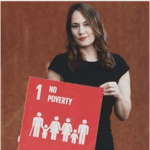 Josefin Pasanen works as a Research & Partnerships Specialist at the UNDP Human Development Report Office (HDRO). Prior to joining HDRO, she was head of Capacity Building at the Latin America & Caribbean Office of Poverty Action Lab (J-PAL LAC), where she led a team that supported government, NGO, and private sector partners across the region to develop capacities for evidence-based policymaking, research, monitoring and evaluation. She is a development economist by training and holds an MSc In Local Economic Development from the London School of Economics and Political Science (LSE) and a BSc in Economics and Political Science from Uppsala University. Josefin’s previous experience also includes research at the Swedish Agency for Public Management and the Institute for Evaluation of Labour Market and Education Policy, and policy advisory for the Mayor ́s office at the City of Stockholm.
Josefin Pasanen works as a Research & Partnerships Specialist at the UNDP Human Development Report Office (HDRO). Prior to joining HDRO, she was head of Capacity Building at the Latin America & Caribbean Office of Poverty Action Lab (J-PAL LAC), where she led a team that supported government, NGO, and private sector partners across the region to develop capacities for evidence-based policymaking, research, monitoring and evaluation. She is a development economist by training and holds an MSc In Local Economic Development from the London School of Economics and Political Science (LSE) and a BSc in Economics and Political Science from Uppsala University. Josefin’s previous experience also includes research at the Swedish Agency for Public Management and the Institute for Evaluation of Labour Market and Education Policy, and policy advisory for the Mayor ́s office at the City of Stockholm. Vladimir Hlasny, economic affairs officer with UN-ESCWA (Beirut), Poverty and inequality research team. Previously an associate professor of Economics at Ewha Womans University (Seoul). His work is on labor market conditions and the distribution of economic outcomes in Asia and the Middle East. His research has been published in general-interest journals including the World Bank Economic Review, Review of Income and Wealth, Journal of Regulatory Economics, Development and Change, and Social Science Quarterly. PhD in Economics from Michigan State University.
Vladimir Hlasny, economic affairs officer with UN-ESCWA (Beirut), Poverty and inequality research team. Previously an associate professor of Economics at Ewha Womans University (Seoul). His work is on labor market conditions and the distribution of economic outcomes in Asia and the Middle East. His research has been published in general-interest journals including the World Bank Economic Review, Review of Income and Wealth, Journal of Regulatory Economics, Development and Change, and Social Science Quarterly. PhD in Economics from Michigan State University. Hassan Hamie, economist with UN-ESCWA (Beirut), Poverty and inequality research team. Previously worked as an engineer for the Lebanese Petroleum Administration. Currently working on the topics of poverty, Inequality and inclusive development. PhD in Energy Economics from Technical University of Vienna.
Hassan Hamie, economist with UN-ESCWA (Beirut), Poverty and inequality research team. Previously worked as an engineer for the Lebanese Petroleum Administration. Currently working on the topics of poverty, Inequality and inclusive development. PhD in Energy Economics from Technical University of Vienna.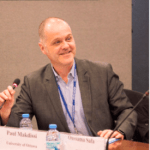 Paul Makdissi is a professor at the Department of Economics of the University of Ottawa. He is currently an Associate Editor of the Journal of Economic Inequality. Previously he has held positions at the Université de Sherbrooke (Canada) and the Vrije Universiteit Amsterdam (The Netherlands). His main areas of research are socioeconomic health inequality measurement, the distributive impact of taxation and public pricing, and income inequality measurement. He was the president of the Société canadienne de science économique (the French Canadian economics association) for the 2021-2022 academic year. From 2017 to 2019, he was the thematic leader for the Equity and Inclusive Growth research theme for the Economic Research Forum for the Arab Countries, Iran and Turkey. He has also been a consultant for many federal and provincial ministries and agencies in Canada, the World Bank, and the United Nations Economic and Social Commission for Western Asia.
Paul Makdissi is a professor at the Department of Economics of the University of Ottawa. He is currently an Associate Editor of the Journal of Economic Inequality. Previously he has held positions at the Université de Sherbrooke (Canada) and the Vrije Universiteit Amsterdam (The Netherlands). His main areas of research are socioeconomic health inequality measurement, the distributive impact of taxation and public pricing, and income inequality measurement. He was the president of the Société canadienne de science économique (the French Canadian economics association) for the 2021-2022 academic year. From 2017 to 2019, he was the thematic leader for the Equity and Inclusive Growth research theme for the Economic Research Forum for the Arab Countries, Iran and Turkey. He has also been a consultant for many federal and provincial ministries and agencies in Canada, the World Bank, and the United Nations Economic and Social Commission for Western Asia. Susan Shirk is a research professor and chair of the 21st Century China Center. She is one of the most influential experts working on U.S.-China relations and Chinese politics. She is also director emeritus of the UC Institute on Global Conflict and Cooperation (IGCC).
Susan Shirk is a research professor and chair of the 21st Century China Center. She is one of the most influential experts working on U.S.-China relations and Chinese politics. She is also director emeritus of the UC Institute on Global Conflict and Cooperation (IGCC). Suman Seth is an Associate Professor of Economics at the Leeds University Business School and an honorary Research Associate at the Oxford Poverty and Human Development Initiative (OPHI). He had previously been a Research Officer and a Senior Research Officer at OPHI between 2010 and 2015. He is primarily interested in Development Economics with a particular emphasis on measurement methodologies and policy-oriented applications. Previously, he has served as consultants to the Regional Bureau of Latin America and the Caribbean, United Nations Development Programme (UNDP), to the Development Research Groups at the World Bank, and to the Asian Development Bank. He has co-authored a book on income poverty measurement with the World Bank and a book on multidimensional poverty with OPHI colleagues.
Suman Seth is an Associate Professor of Economics at the Leeds University Business School and an honorary Research Associate at the Oxford Poverty and Human Development Initiative (OPHI). He had previously been a Research Officer and a Senior Research Officer at OPHI between 2010 and 2015. He is primarily interested in Development Economics with a particular emphasis on measurement methodologies and policy-oriented applications. Previously, he has served as consultants to the Regional Bureau of Latin America and the Caribbean, United Nations Development Programme (UNDP), to the Development Research Groups at the World Bank, and to the Asian Development Bank. He has co-authored a book on income poverty measurement with the World Bank and a book on multidimensional poverty with OPHI colleagues. Fanni Kovesdi (Oxford Poverty and Human Development Initiative, Department of International Development, University of Oxford)
Fanni Kovesdi (Oxford Poverty and Human Development Initiative, Department of International Development, University of Oxford)
 Scott M. Moore is a political scientist, university administrator, and former policymaker whose career focuses on China, sustainability, and emerging technology. As Director of China Programs and Strategic Initiatives at the University of Pennsylvania, Scott Moore works with faculty members from across the University to design, implement, and highlight innovative, high-impact global research initiatives in areas including sustainability and emerging technology. Dr. Moore directs Penn Global’s four research and engagement fund programs, including those designed to support faculty-led projects in China, India, and Africa as well as its At-Risk Scholars Program. In addition, Dr. Moore conducts research as an affiliate of the Center for the Study of Contemporary China and The Water Center at Penn, and teaches in the Department of Political Science.
Scott M. Moore is a political scientist, university administrator, and former policymaker whose career focuses on China, sustainability, and emerging technology. As Director of China Programs and Strategic Initiatives at the University of Pennsylvania, Scott Moore works with faculty members from across the University to design, implement, and highlight innovative, high-impact global research initiatives in areas including sustainability and emerging technology. Dr. Moore directs Penn Global’s four research and engagement fund programs, including those designed to support faculty-led projects in China, India, and Africa as well as its At-Risk Scholars Program. In addition, Dr. Moore conducts research as an affiliate of the Center for the Study of Contemporary China and The Water Center at Penn, and teaches in the Department of Political Science. interested in understanding the factors that shape technological change, with a particular focus on transitioning to more sustainable and energy-saving technologies. Within this broader category, he studies consumer preferences and market demand for new technologies as well as relationships between innovation, industry structure, and technology policy. He has explored these themes in the context of China’s rapidly developing electric vehicle industry. He applies an interdisciplinary approach to research, with expertise in discrete choice modeling and conjoint analysis as well as interview-based case studies.
interested in understanding the factors that shape technological change, with a particular focus on transitioning to more sustainable and energy-saving technologies. Within this broader category, he studies consumer preferences and market demand for new technologies as well as relationships between innovation, industry structure, and technology policy. He has explored these themes in the context of China’s rapidly developing electric vehicle industry. He applies an interdisciplinary approach to research, with expertise in discrete choice modeling and conjoint analysis as well as interview-based case studies. Barbara Stallings is a William R. Rhodes Research Professor at the Watson Institute for International Studies at Brown University and editor of Studies in Comparative International Development. She is also a Distinguished Visiting Scholar at the Institute for International Economic Policy at George Washington University. Before arriving at Brown in 2002, she was director of the Economic Development Division of the UN Economic Commission for Latin America and the Caribbean in Santiago, Chile (1993–2002), and professor of political economy at the University of Wisconsin–Madison (1977–1993). She has doctorates in economics (University of Cambridge) and in political science (Stanford University) and is a specialist in development economics, with an emphasis on development strategies and international finance. In addition, she works on issues of economic relations between Asia and Latin America and comparisons between the two regions. Her recent books are Innovation and Inclusion in Latin America: Strategies to Avoid the Middle Income Trap (2016) and Promoting Development: The Political Economy of East Asian Foreign Aid (2017). Her most recent book,
Barbara Stallings is a William R. Rhodes Research Professor at the Watson Institute for International Studies at Brown University and editor of Studies in Comparative International Development. She is also a Distinguished Visiting Scholar at the Institute for International Economic Policy at George Washington University. Before arriving at Brown in 2002, she was director of the Economic Development Division of the UN Economic Commission for Latin America and the Caribbean in Santiago, Chile (1993–2002), and professor of political economy at the University of Wisconsin–Madison (1977–1993). She has doctorates in economics (University of Cambridge) and in political science (Stanford University) and is a specialist in development economics, with an emphasis on development strategies and international finance. In addition, she works on issues of economic relations between Asia and Latin America and comparisons between the two regions. Her recent books are Innovation and Inclusion in Latin America: Strategies to Avoid the Middle Income Trap (2016) and Promoting Development: The Political Economy of East Asian Foreign Aid (2017). Her most recent book, 



 Ricardo Nogales (Universidad Privada de Bolivia and Oxford Poverty and Human Development Initiative, University of Oxford)
Ricardo Nogales (Universidad Privada de Bolivia and Oxford Poverty and Human Development Initiative, University of Oxford)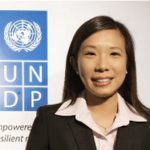 Yu-Chieh Hsu (Human Development Report Office)
Yu-Chieh Hsu (Human Development Report Office) Tasneem Mirza (United Nations Development Programme)
Tasneem Mirza (United Nations Development Programme) Dr. Yanzhong Huang is a senior fellow for global health at the Council on Foreign Relations, where he directs the Global Health Governance roundtable series. He is also a professor and the director of global health studies at Seton Hall University’s School of Diplomacy and International Relations, where he developed the first academic concentration among U.S. professional schools of international affairs that explicitly addresses the security and foreign policy aspects of health issues. He is the founding editor of Global Health Governance: The Scholarly Journal for the New Health Security Paradigm.
Dr. Yanzhong Huang is a senior fellow for global health at the Council on Foreign Relations, where he directs the Global Health Governance roundtable series. He is also a professor and the director of global health studies at Seton Hall University’s School of Diplomacy and International Relations, where he developed the first academic concentration among U.S. professional schools of international affairs that explicitly addresses the security and foreign policy aspects of health issues. He is the founding editor of Global Health Governance: The Scholarly Journal for the New Health Security Paradigm.


 Michael Moore received his B.A. in liberal arts from the University of Texas at Austin and his M.S. and Ph.D. in economics from the University of Wisconsin-Madison. He is Director of the Masters of Arts in International Economic Policy program and has been a faculty member at the Elliott School since receiving his doctorate in 1988. Professor Moore teaches undergraduate and graduate courses in international trade theory and policy as well as international macroeconomics. He also has taught international economics to US diplomats at the Foreign Service Institute and students at the Fondation Nationale des Sciences Politiques (Sciences-Po) in Paris. He has published in numerous academic journals including the Journal of International Economics, International Trade Journal, Canadian Journal of Economics, Review of International Economics, European Journal of Political Economy, and Weltwirtschaftliches Archiv, and has been a contributor to five books. His commentary has appeared in numerous media outlets, including The Washington Post, The Financial Times, CNN, CBC, NPR, and NBC.
Michael Moore received his B.A. in liberal arts from the University of Texas at Austin and his M.S. and Ph.D. in economics from the University of Wisconsin-Madison. He is Director of the Masters of Arts in International Economic Policy program and has been a faculty member at the Elliott School since receiving his doctorate in 1988. Professor Moore teaches undergraduate and graduate courses in international trade theory and policy as well as international macroeconomics. He also has taught international economics to US diplomats at the Foreign Service Institute and students at the Fondation Nationale des Sciences Politiques (Sciences-Po) in Paris. He has published in numerous academic journals including the Journal of International Economics, International Trade Journal, Canadian Journal of Economics, Review of International Economics, European Journal of Political Economy, and Weltwirtschaftliches Archiv, and has been a contributor to five books. His commentary has appeared in numerous media outlets, including The Washington Post, The Financial Times, CNN, CBC, NPR, and NBC.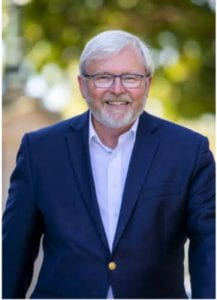 Kevin Rudd is a former Prime Minister of Australia and current President and CEO of the Asia Society. He became President and CEO of Asia Society in January 2021 and has been president of the Asia Society Policy Institute since January 2015. He served as Australia’s 26th Prime Minister from 2007 to 2010, then as Foreign Minister from 2010 to 2012, before returning as Prime Minister in 2013. He is also a leading international authority on China. He began his career as a China scholar, serving as an Australian diplomat in Beijing before entering Australian politics.
Kevin Rudd is a former Prime Minister of Australia and current President and CEO of the Asia Society. He became President and CEO of Asia Society in January 2021 and has been president of the Asia Society Policy Institute since January 2015. He served as Australia’s 26th Prime Minister from 2007 to 2010, then as Foreign Minister from 2010 to 2012, before returning as Prime Minister in 2013. He is also a leading international authority on China. He began his career as a China scholar, serving as an Australian diplomat in Beijing before entering Australian politics. David Shambaugh is an internationally recognized authority and award-winning author on contemporary China and the international relations of Asia. He currently is the Gaston Sigur Professor of Asian Studies, Political Science & International Affairs, and the founding Director of the China Policy Program in the Elliott School of International Affairs at George Washington University. He was also a formerly a Nonresident Senior Fellow in the Foreign Policy Studies Program at The Brookings Institution and Director of the Asia Program at the Woodrow Wilson International Center for Scholars.
David Shambaugh is an internationally recognized authority and award-winning author on contemporary China and the international relations of Asia. He currently is the Gaston Sigur Professor of Asian Studies, Political Science & International Affairs, and the founding Director of the China Policy Program in the Elliott School of International Affairs at George Washington University. He was also a formerly a Nonresident Senior Fellow in the Foreign Policy Studies Program at The Brookings Institution and Director of the Asia Program at the Woodrow Wilson International Center for Scholars.
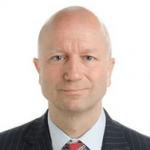



 Daniel Yi Xu is a Professor of Economics at Duke University and Research Associate at the National Bureau of Economic Research. Co-editor of the Review of Economics and Statistics. He is also the associate editor of the Rand Journal of Economics and AEJ: Applied. His research focus tends to focus on Productivity/Innovation, International Trade, and Industrial Organization. His website:
Daniel Yi Xu is a Professor of Economics at Duke University and Research Associate at the National Bureau of Economic Research. Co-editor of the Review of Economics and Statistics. He is also the associate editor of the Rand Journal of Economics and AEJ: Applied. His research focus tends to focus on Productivity/Innovation, International Trade, and Industrial Organization. His website:  Trevon Logan is the Hazel C. Youngberg Distinguished Professor of Economics at The Ohio State University. Professor Logan specializes in economic history, economic demography and applied microeconomics. His research in economic history concerns the development of living standards measures that can be used to directly assess the question of how the human condition has changed over time. He applies the techniques of contemporary living standard measurements to the past as a means of deriving consistent estimates of well-being over time. Most of his historical work uses historical household surveys, but also includes some new data to look at topics such as the returns to education in the early twentieth century, the formation of tastes, and the allocation of resources within the household. He is a Research Associate at the National Bureau of Economic Research and holds a PhD in Economics from the University of California at Berkeley.
Trevon Logan is the Hazel C. Youngberg Distinguished Professor of Economics at The Ohio State University. Professor Logan specializes in economic history, economic demography and applied microeconomics. His research in economic history concerns the development of living standards measures that can be used to directly assess the question of how the human condition has changed over time. He applies the techniques of contemporary living standard measurements to the past as a means of deriving consistent estimates of well-being over time. Most of his historical work uses historical household surveys, but also includes some new data to look at topics such as the returns to education in the early twentieth century, the formation of tastes, and the allocation of resources within the household. He is a Research Associate at the National Bureau of Economic Research and holds a PhD in Economics from the University of California at Berkeley. Shari Eli is an Associate Professor of Economics at the University of Toronto and a Research Associate at the National Bureau of Economic Research. Her fields of research are economic history, health economics and demography. One section of her research explores the ways in which individuals of low socioeconomic status used cash transfers to improve their health status over the course of the lifecycle. Another section explores the intergenerational persistence of welfare receipt as well as the relationship between social assistance and marriage decisions.
Shari Eli is an Associate Professor of Economics at the University of Toronto and a Research Associate at the National Bureau of Economic Research. Her fields of research are economic history, health economics and demography. One section of her research explores the ways in which individuals of low socioeconomic status used cash transfers to improve their health status over the course of the lifecycle. Another section explores the intergenerational persistence of welfare receipt as well as the relationship between social assistance and marriage decisions. John J. Clegg is an historical sociologist working on the roots of mass incarceration in the United States and the comparative political economy of slavery and emancipation in the Atlantic world.
John J. Clegg is an historical sociologist working on the roots of mass incarceration in the United States and the comparative political economy of slavery and emancipation in the Atlantic world. ugh is a Professor of Economics and International Affairs, and Director of the Institute for International Economic Policy at the Elliott School of International Affairs, George Washington University. His area of research is macroeconomics and international economics. He has had two stints in public service. He served as a Member of the White House Council of Economic Advisors from 2015-2017. Earlier, he served on the staff of the CEA as a Senior Economist for International Economics and then as the Chief Economist. He also spent 3 years as the Director of the Hamilton Project at the Brookings Institution. Jay is also a Faculty Research Fellow at the NBER and Non-Resident Senior Fellow in Economic Studies at Brookings. Prior to joining the faculty at George Washington, Jay taught at Georgetown and Dartmouth and was a visiting scholar at the IMF. He received his Ph.D. in economics from the University of California at Berkeley, an M.A. from the Fletcher School at Tufts, and a B.A. from Yale University.
ugh is a Professor of Economics and International Affairs, and Director of the Institute for International Economic Policy at the Elliott School of International Affairs, George Washington University. His area of research is macroeconomics and international economics. He has had two stints in public service. He served as a Member of the White House Council of Economic Advisors from 2015-2017. Earlier, he served on the staff of the CEA as a Senior Economist for International Economics and then as the Chief Economist. He also spent 3 years as the Director of the Hamilton Project at the Brookings Institution. Jay is also a Faculty Research Fellow at the NBER and Non-Resident Senior Fellow in Economic Studies at Brookings. Prior to joining the faculty at George Washington, Jay taught at Georgetown and Dartmouth and was a visiting scholar at the IMF. He received his Ph.D. in economics from the University of California at Berkeley, an M.A. from the Fletcher School at Tufts, and a B.A. from Yale University.